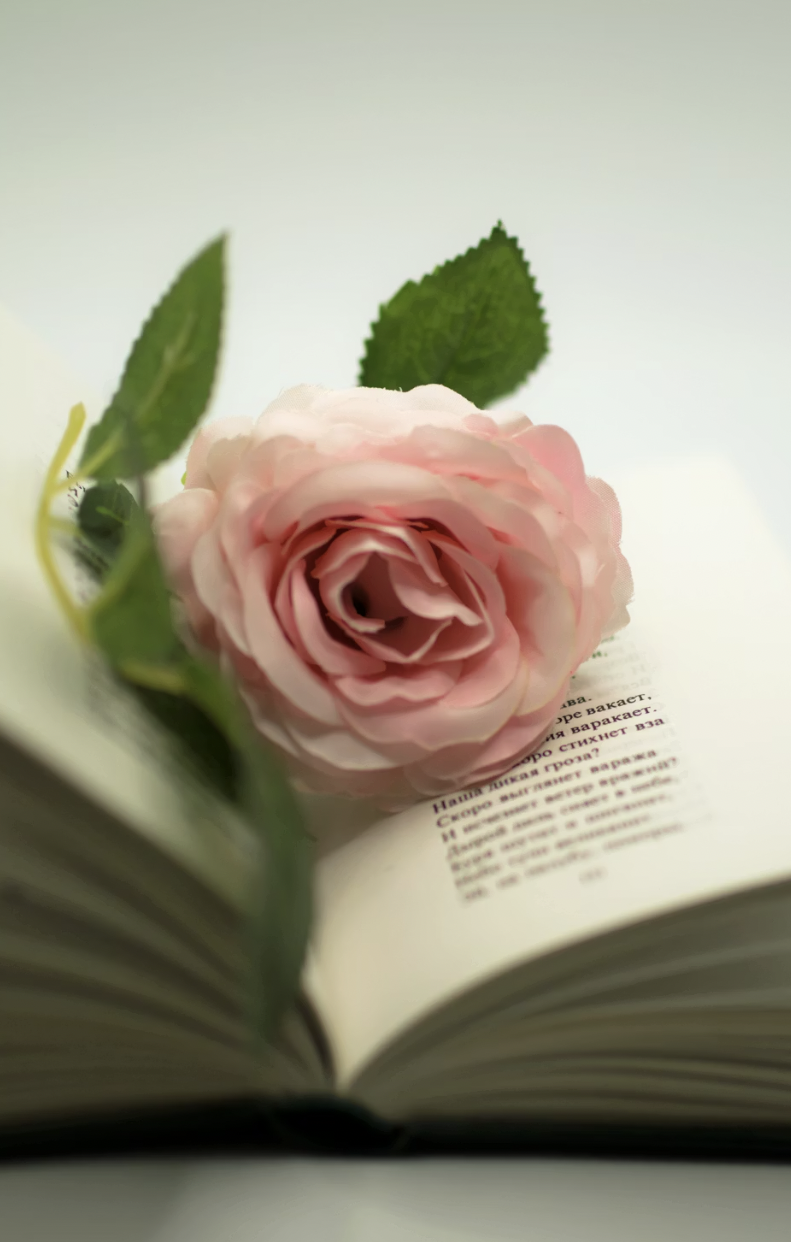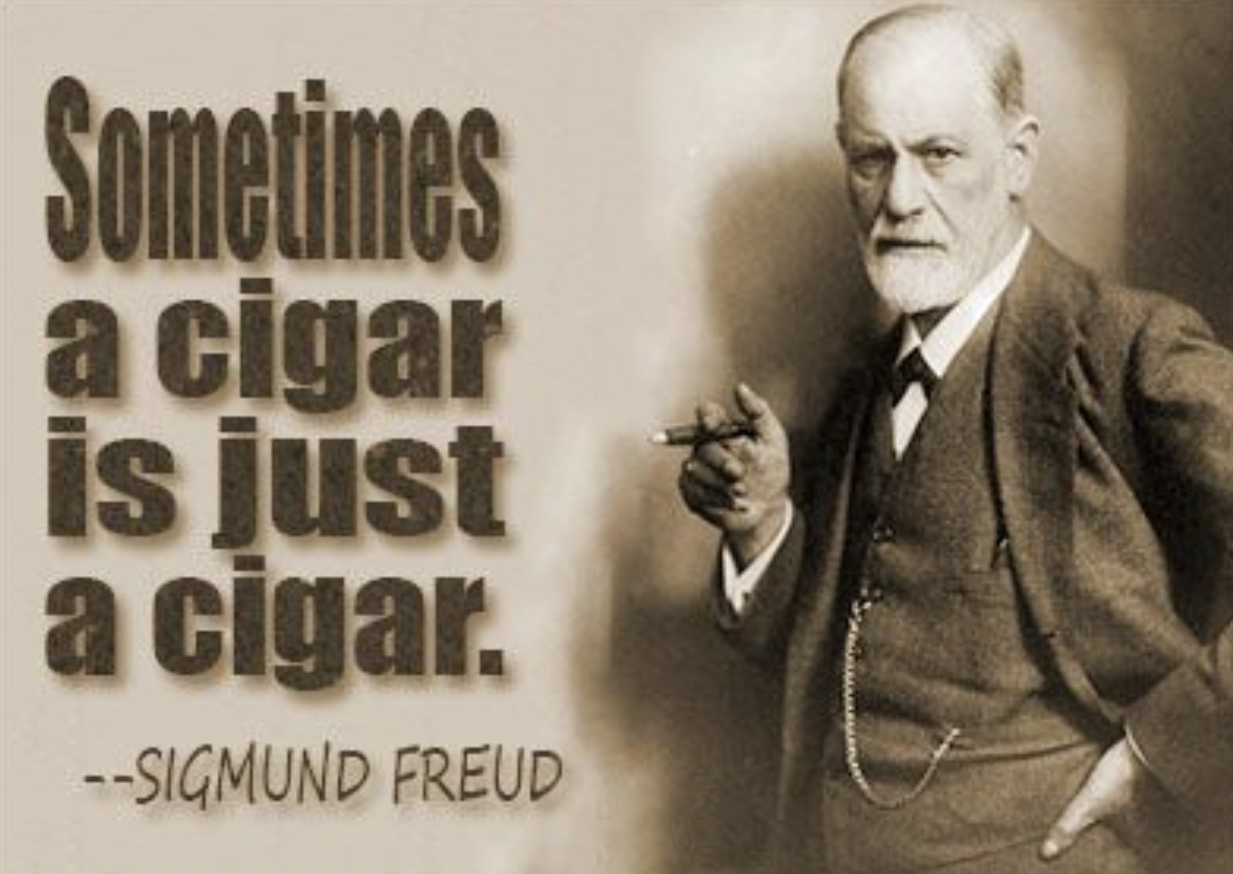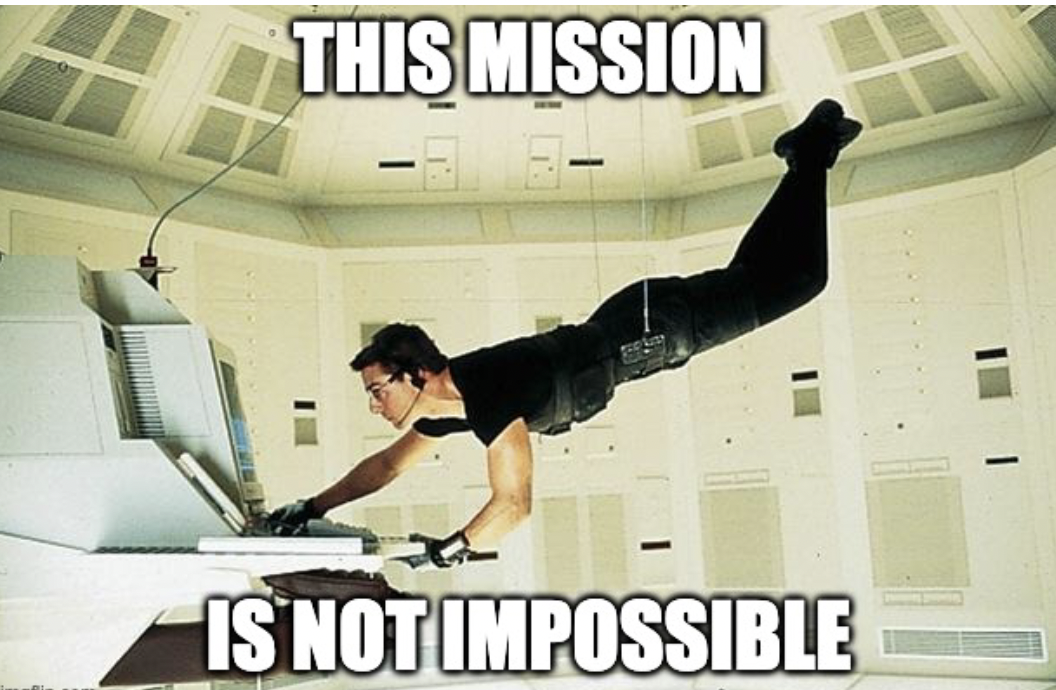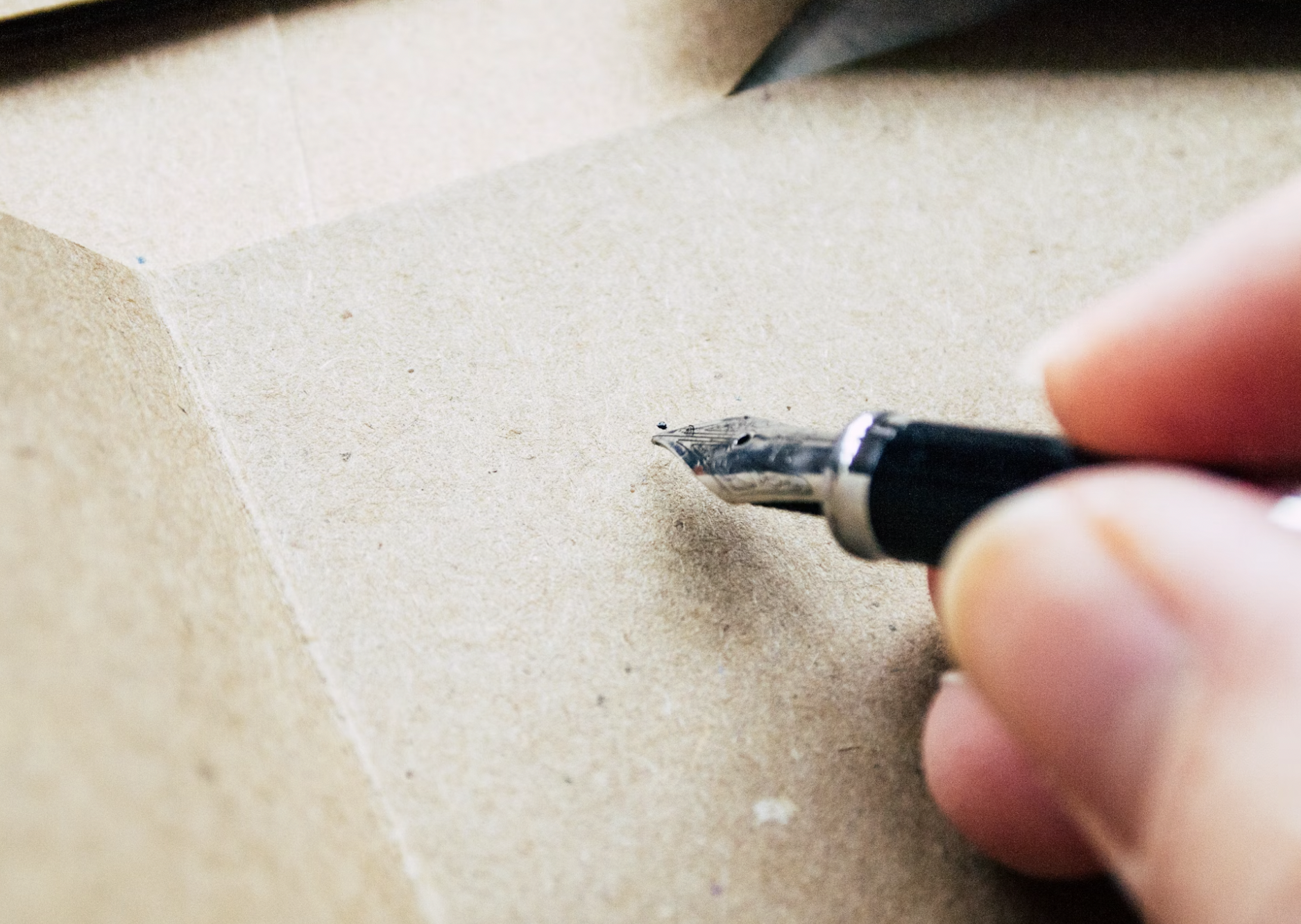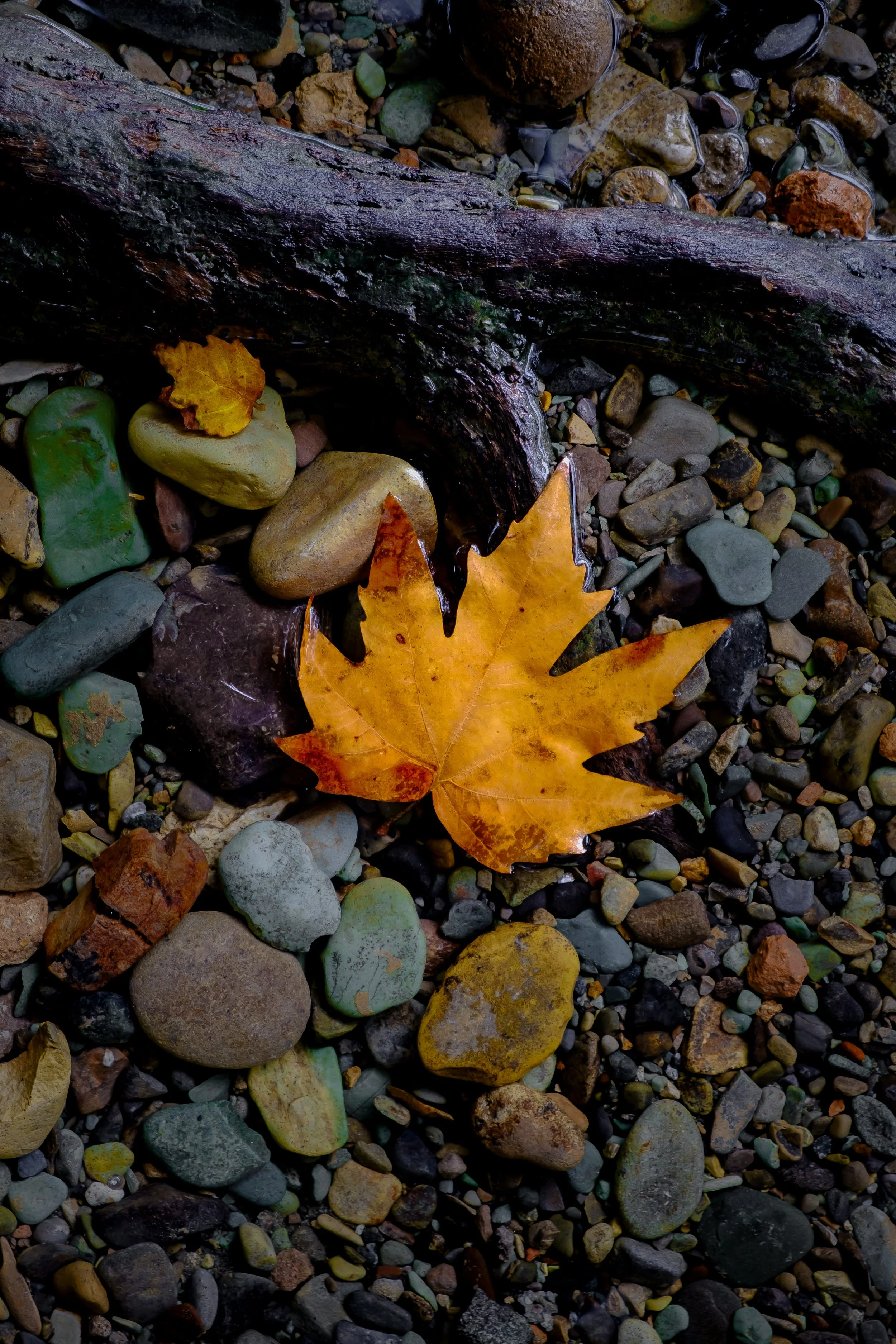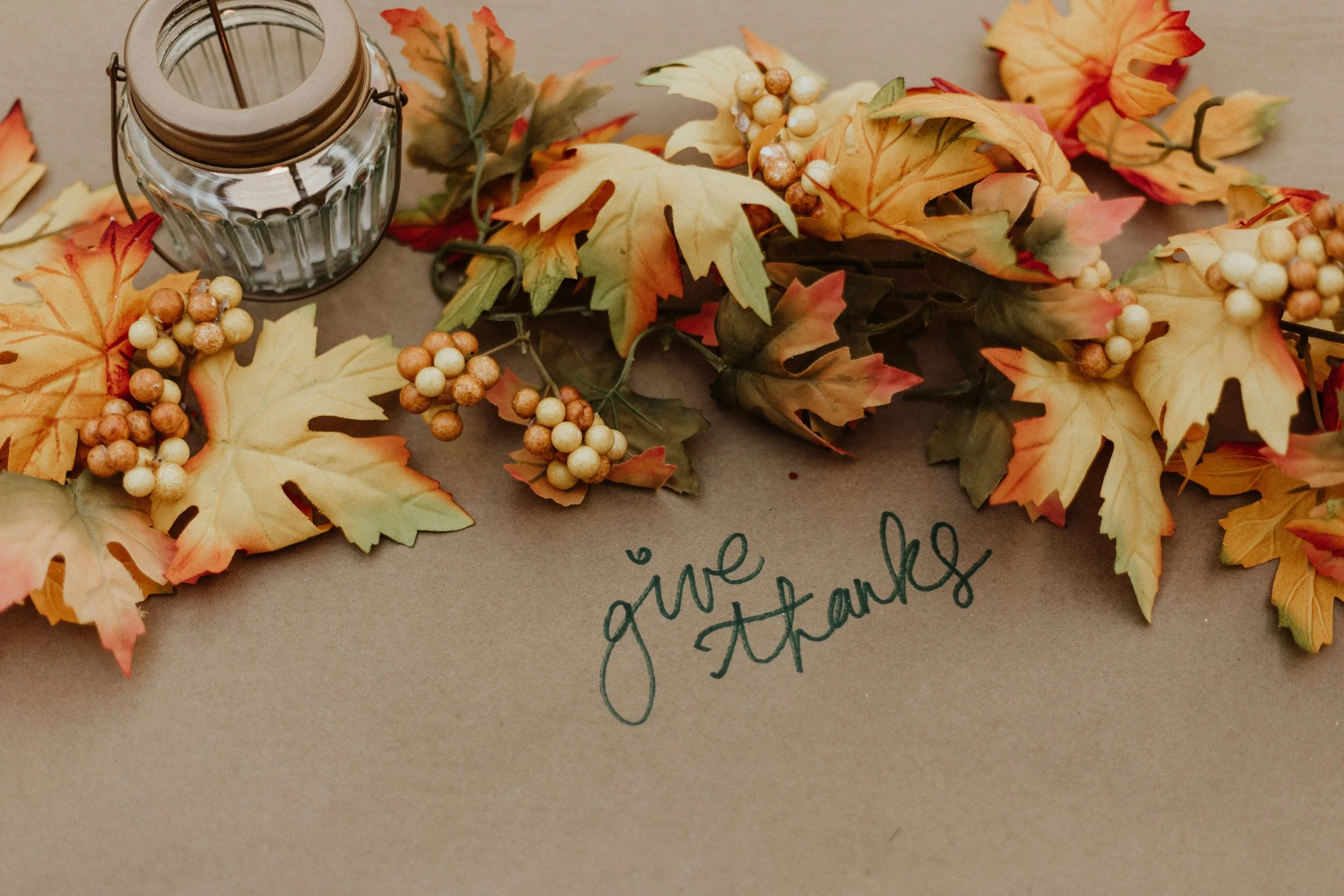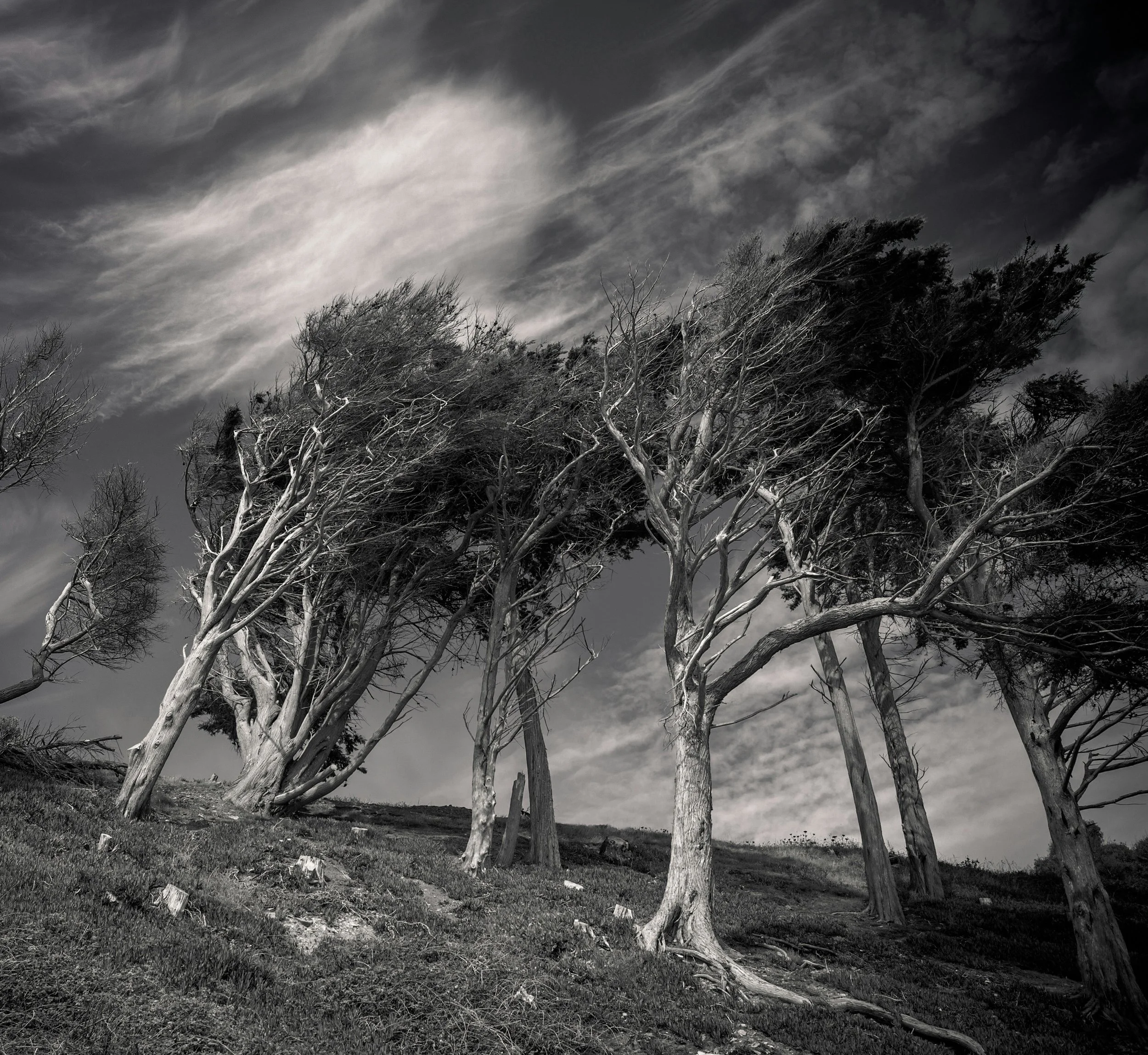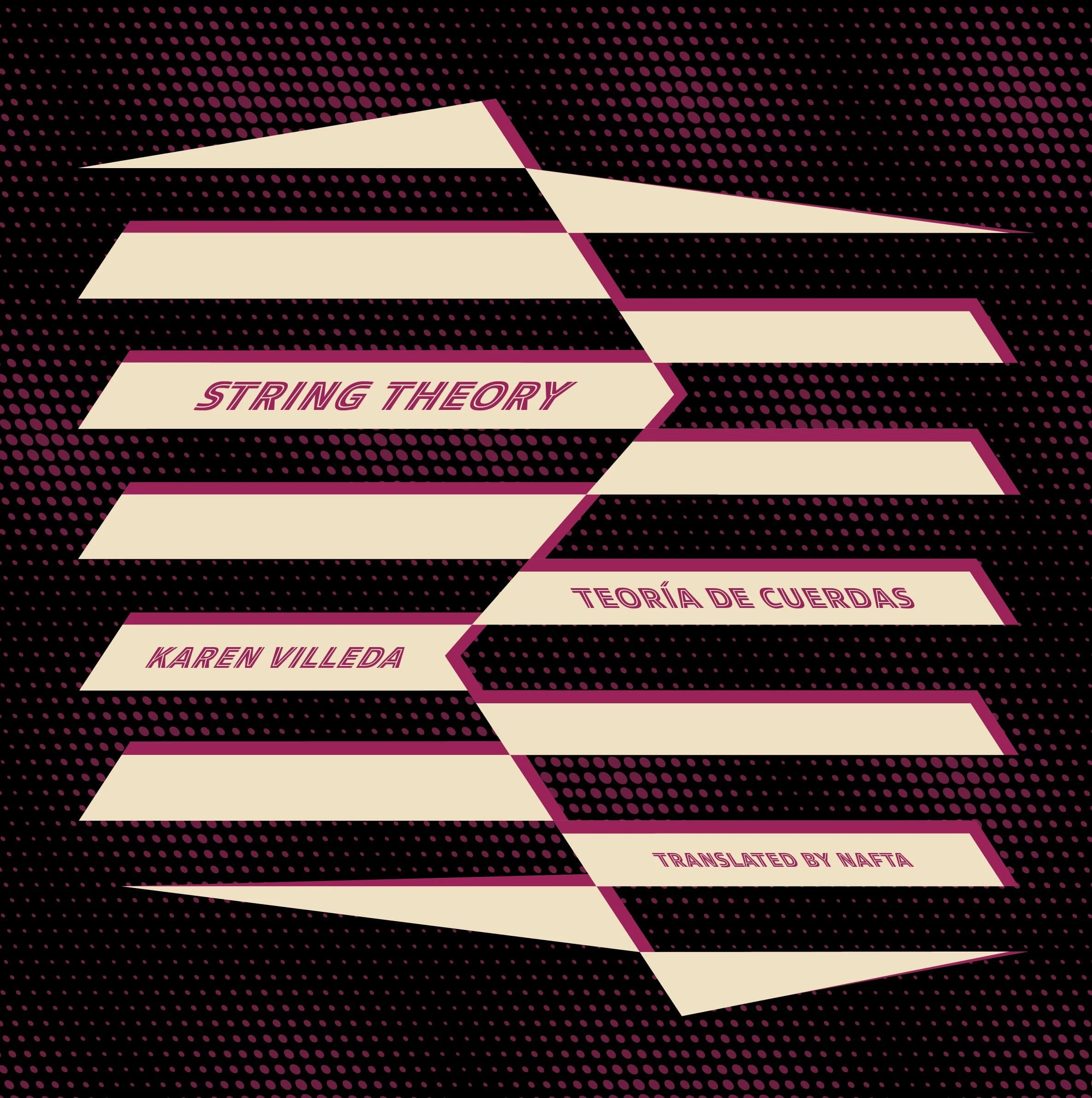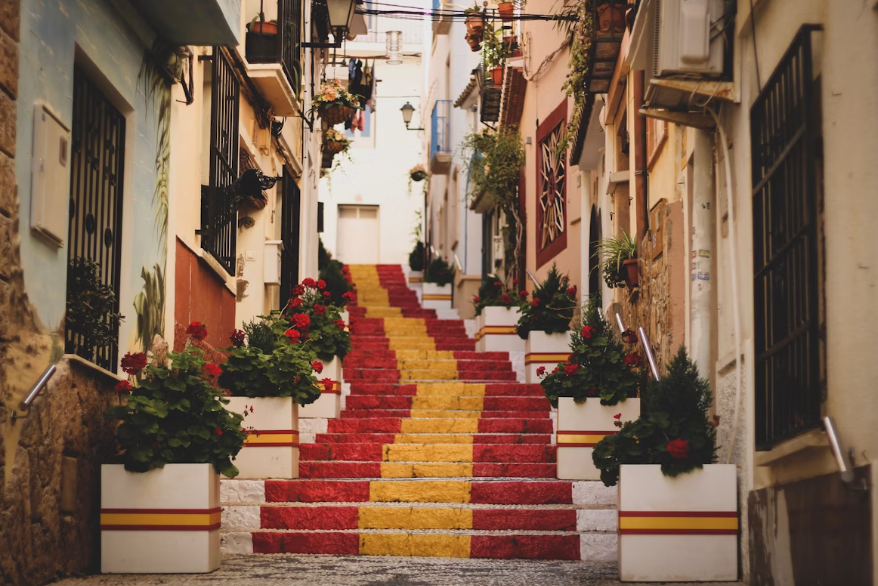
HOW TO POET
How to Read a Poem Without Feeling Stupid (or Like You’re Doing It Wrong)
Poetry is not a deep mystery. If you don’t get a poem, it’s not because you’re missing a secret everyone else understands. Here’s what you actually need to know about reading poetry.
“Whan that Aprill with his shoures soote
The droghte of March hath perced to the roote,
And bathed every veyne in swich licour
Of which vertu engendred is the flour;”
When I first opened The Canterbury Tales in 9th grade and read these lines, I said, “What the heck is this?” I panicked. I wasn’t unfamiliar with poetry, but this was the first time I had encountered something in this style and form. I remember thinking: If this were my first exposure to poetry, I might decide poetry just isn’t for me.
I took a different route. I decided The Canterbury Tales were not for me—at least not then. We had to read The Canterbury Tales again in 12th grade. This time, it went down much better. We had a teacher who walked us through the language line by line and helped us understand what we were reading. Once we did, we found it funny and raunchy—something that had completely passed us by in 9th grade.
Poetry is not a deep mystery. If you don’t get a poem, it’s not because you’re missing a secret everyone else understands. Here’s what you actually need to know about reading poetry.
1. You Do Not Need an Advanced Education to Read a Poem.
You just need to know how to read. You don’t need an MFA to read poetry.
2. You Don’t Have to Know What the Poem Means.
Sometimes when I write a poem, I don’t know what it means—so why should I expect you to? People take different things from art. Don’t search for a “correct” meaning. Take in the words and see what speaks to you.
3. Not Liking Certain Poems Does Not Mean You Do Not Like Poetry.
Deciding you don’t like poetry after reading a few poems is like trying rum raisin ice cream and deciding you hate all ice cream. I’ve sat through poetry readings where I wanted to skewer my ears. There are thousands of poetic styles. No one is expected to like everything. There is a poem out there for you—you just have to keep reading until you find it.
4. You Do Not Have To Understand Every Line.
If you don’t get it, that’s okay. Keep going. Maybe it’s something you’ll return to later. Maybe it’s something you’ll never understand. Maybe no one will!
5. You Don’t Have to Identify Every Metaphor Correctly on the First Try.
Sometimes metaphors hold a poem’s deeper meaning. Sometimes the entire poem is the metaphor. Sometimes the poem is so literal there’s no metaphor at all.
This is How to Read A Poem
Let me be clear: I am not teaching you how to analyze a poem. That’s a different skill entirely. I’m just teaching you how to read and enjoy one.
Here’s a simple four-step process:
Notice what stands out. A word, a sound, an image, a feeling.
Notice what your body does. Does your heart speed up? Slow down? Do you feel curious or resistant?
Ask one low-stakes question. Why this word? Why this line break?
Stop. Stopping is the successful part. You did it.
What if I Still Don’t Get It?
That’s normal. Let the poem sit with you—or let it go. Reading poetry shouldn’t feel like homework. It’s a conversation you can leave and return to whenever you want.
Your Mission If You Choose to Accept It
Read one poem this week without explaining it to anyone.
Katerina Canyon is a poet, essayist, and nonprofit executive based in Harlem, NY. She is the Executive Director of the Peace Economy Project and the author of the poetry collections Surviving Home and Changing the Lines. Her work explores embodiment, memory, and attention—often pushing against the idea that poetry requires permission, expertise, or perfect understanding to be meaningful.
How to Poet Your Portfolio: What T.S. Eliot Can Teach Wall Street
We tend to imagine poets and investors as opposites: one traffics in metaphor, the other in metrics. Yet beneath their different vocabularies lies a shared obsession–with pattern, probability, and perception. What if poetry were not a distraction from rational thinking, but the discipline that keeps it honest?
We tend to imagine poets and investors as opposites: one traffics in metaphor, the other in metrics. Yet beneath their different vocabularies lies a shared obsession–with pattern, probability, and perception. What if poetry were not a distraction from rational thinking, but the discipline that keeps it honest?
T. S. Eliot, himself an investment professional before becoming a Nobel laureate, famously wrote that “poetry keeps clean the tools of thought.” In “Burnt Norton,” he sharpens this claim: “Time present and time past / Are both perhaps present in time future.” Markets, like poems, punish distraction. Attention–precise, sustained, undivided–is not ornamental; it is the medium through which meaning and value emerge.
Sharpening vs. Leveling: Why Poets Outperform Algorithms
Cognitive psychology distinguishes between two habits of mind: sharpening, the ability to preserve nuance, and leveling, the impulse to flatten complexity. Markets tend toward leveling–confirmation bias, groupthink, the seduction of a single story.
Research in cognitive poetics by Reuven Tsur shows that readers trained in literary analysis adopt sharpening strategies. They tolerate ambiguity, entertain competing interpretations, and delay closure. John Keats named this stance Negative Capability: the capacity to remain with uncertainty without forcing resolution, a sensibility that later echoes through Eliot’s modernism. In investing terms, it is the difference between panic-selling and patient observation. The poet reads volatility the way a trader reads a chart for signal.
Negative Capability: Reading Uncertainty
Poets and investors work with incomplete information, inferring structure from fragments while resisting premature coherence. As Keats observed, the mind at its most alive can remain “in uncertainties, mysteries, doubts, without any irritable reaching after fact and reason.” This is not indecision but intellectual restraint–a refusal to collapse ambiguity into narrative. Markets, like poems, reward those who stay inside uncertainty without converting it into false clarity.
Elizabeth Bishop models this discipline in “At the Fishhouses,” where “the water was cold dark deep and absolutely clear.” The paradox mirrors market reality: clarity does not remove depth or danger. Her refusal to exaggerate or simplify models the same attentiveness required for sound judgment.
Psychologist Jamil Qureshi calls this consistency of mind: clarity under contradiction. Reading poetry trains it, interrupting mental automation and revealing how we think, not just what we think.
The Neuroscience of Metaphor and Market Instinct
Neuroscientist Antonio Damasio argues in Descartes’ Error (1994) that decision-making and emotion share neural circuitry. Logic and feeling are co-conspirators. The “golden gut” of a seasoned investor is not instinct opposed to reason but intuition shaped by reflection. Metaphor, the poet’s central tool, strengthens that same circuitry. Reading poetry trains the balance between analysis and empathy required for sound judgement.
In “The Metaphysical Poets” (1921), Eliot calls it a “unified sensibility–the ability to think and feel at once. Anne Carson writes from within this state. In “Essay on What I Think About Most,” from Men in the Off Hours (2000), she asks: “Why does tragedy exist? Because you are full of rage. Why are you full of rage? Because you are full of grief.” The logic is recursive, mirroring how decisions unfold under pressure.
To read Carson is to stay with tension. That patience is not aesthetic indulgence but a form of attention suited to worlds–financial or political–where meaning emerges only over time.
Reframing the Frame
Stanford researcher Elise Ann Earthman found that readers of poetry generate nearly twice as many interpretations as non-readers–effectively doubling scenario planning. Poetry resists pre-packaged frames and asks a more subversive question: what if the frame itself is wrong? Sometimes the decisive act is not prediction but rephrasing. Elizabeth Bishop’s “One Art” models this discipline: its claim that “the art of losing isn’t hard to master” quietly fractures under pressure, exposing cracks in certainty. Poetry teaches us to notice them. To read poems seriously is to treat attention as capital.
In a culture of speed and simplification, poetry restores friction and depth. Perhaps the best hedge against irrational exuberance isn’t diversification–but verse. Poetry keeps clean the tools of thought, and in that clarity, both meaning and markets stand a better chance.
Anna Seidel (she/hers) is a poet, investment professional, and creative strategist exploring cultural economics and transdisciplinary collaboration. Having completed her studies at Oxford, Harvard, and the University St. Gallen, she combines her economics and literature background to study how creativity shapes decision-making. Her work has appeared at the Venice Biennale 2025, Stand Magazine, The Fiddlehead, Stanford’s Mantis, and others. She
is a President Eisenhower Global Fellow 23' and McCloy Fellow 25’.
How to Unblock Writer’s (Poet’s) Block: A Three-Step Guide
Revision is a matter of addressing questions about the work and how to best change it. The next time you’re bashing your head against a stanza, try taking a look at these.
Revision is a matter of addressing questions about the work and how to best change it. The next time you’re bashing your head against a stanza, try taking a look at these.
1. What is the most interesting line of or idea in the poem?
Use this to address: how you change the rest of your poem to then amplify or contrast that moment.
Next steps: free writing/reducing the soup.
Reduce the Soup!
Looping is a common name for the strategy of using something you’ve written as a prompt for a free write. “Reducing the soup” is a strategy of looping I was taught where after each free writing session, you then choose the most interesting line from your previous loop. Here’s an example:
hierophant's house
craving structure despite its caveats
a cross before the masculine
a moon for the feminine
pillars divide secrets the curtains between worlds
profound admiration for aligning one’s actions
When I highlight the most interesting language in the poem, I might choose to save:
pillars divide secrets the curtains between worlds
Reduction
pillars divide secrets the curtains between worlds
floral curtains made by my mother
the carpets in my grandparent’s apartment
dark purple background white blossoms
kneading ground beef to make cutlets with Babau
visiting their kitchen in Manhattan when she was in Florida
the apartment felt bleak and horribly empty
Above, I’ve shifted from writing about a more esoteric and abstract topic to something autobiographical and very tangible. If I wanted to write a second reduction, I might grab the line “kneading ground beef to make cutlets with Babau” or “the apartment felt bleak and horribly empty,” depending on what themes I’m interested in exploring.
2. Does the end of my poem change how the reader understands the beginning?
Use this to address: the sense of progression and depth of a poem
Next steps: read and write your poem backwards
Robert Frost’s “The Road Not Taken” is the classic example of how a poem’s ending changes the entire tone. Instead of taking a ‘less traveled’ path, the speaker reflects on a false front they intend to put on later.
Put Your Thing Down Flip It and Reverse It
This step works just as well for concrete or sound based poetry. It just takes a bit of playfulness.
Start by reading your poem from the last line and work your way up. Mark any moments of transition, rupture, or sudden shifts. Now, with the original version in mind, write the poem backwards. This can be done on either a literal or ideological level. Here’s an example using the last stanza of “The Road Not Taken.”
I shall be telling this with a sigh
Somewhere ages and ages hence:
Two roads diverged in a wood, and I—
I took the one less traveled by,
And that has made all the difference.
Inversion
everything was different in this life
for the road I took was uncommon
the options appeared in the woods
yes– in some some uncanny future
that will be the tale I weave
For example, writing the stanza backwards brought the significance of the em dash forward. While we won’t be making revision suggestions to Mr. Frost, this technique can similarly tell you how a poem is (or isn’t) working. You can also read more about the em dash from Louisa Varni.
3. How are my words arranged on the page?
Use this to address: rhythm, breath, and form
Next steps: scoring
Music and musicality has always been tied to poetry. Modernism, however, popularized fracture as a mode of poetics. You can pair this step with Raymi Hidalgo’s advice on enjambment!
Scoring the Sounds of Your Poem
For this strategy, read the work aloud and mark where you pause. You now have three questions:
● Do I like how the line breaks and spacing made the poem feel?
● Is this reflected on the page?
● What do I want to change?
Study these three versions of the same sentence as an example:
daring I strode forward
daring I strode forward
daring I strode forward
Help! I’m Still Stuck!
If these three strategies didn’t work for you, don’t sweat it. You can always:
● Take a day or two away from the poem!
● Read the work of other writers.
● Check out PSNY’s other guides on How to Poet.
Senia Hardwick is an educator and cat parent located in NYC. Their first book, An Exchange in Demonology: Improvement of the Self and Others, is available from CLOAK. You can read their work at https://seniahardwick.neocities.org and on IG: @necro.pharmakon.
Should You Show Them That Poem About Them?The real rules for writing about family and friends (and staying friends)
Here's what nobody tells you about writing poetry: the best material comes from the people you actually know. Your mother's hands. Your ex's laugh. That friend who ghosted you. But turning real people into poems is like walking through a minefield blindfolded—one wrong step and you've blown up the relationship or perhaps the dinner table.
Here's what nobody tells you about writing poetry: the best material comes from the people you actually know. Your mother's hands. Your ex's laugh. That friend who ghosted you. But turning real people into poems is like walking through a minefield blindfolded—one wrong step and you've blown up the relationship or perhaps the dinner table.
The Big Question: Do You Need Permission?
Short answer: No.
Long answer: You don't need permission to write the poem. Your experiences are yours. But publishing? That's where it gets messy.
Once your poem leaves your journal and hits the internet (or a literary magazine, or an open mic), you're not just exploring your truth. You're potentially exposing someone else's story without their consent. Even if you think you're being subtle.
5 Questions to Ask Yourself Before You Hit "Submit"
1. Is this poem kind? Not flattering, but kind. Does it see them as human, or reduce them to their worst moment?
2. Would this hurt them? If yes, is that pain necessary for truth-telling, or are you just being
mean?
3. Are you still angry? Poems written in white-hot rage are powerful but rarely fair. Give
them time to breathe.
4. Is this their story to tell? Witnessing someone's trauma isn't the same as living it.
5. Would you want to be written about this way? Golden rule applies to poetry too.
4 Strategies That Actually Work
• Use composite characters. Blend details from multiple people. Emotional truth ≠
documentary.
• Focus on YOUR experience. "What I Learned from Silence" instead of "My Father
at the Kitchen Table." Shift the lens.
• Change identifying details. Names, locations, jobs. Keep the emotional core, protect
their identity.
• Write it, then wait. Some of my best poems sat in a drawer for years before I was
ready to share them. Your relationship with the poem will evolve.
What If They Say No?
This is the nuclear scenario: You've written something brilliant. The person asks you not to
publish it. You have the legal right to publish (assuming no libel). But the moral right? That's
yours to decide.
Ask yourself: Is this poem worth losing this relationship? Is its value to the world greater
than the harm to this one person?
Sometimes the answer is yes, especially if you're writing about abuse, systemic harm, or
truths that need telling. But often, more often than we want to admit, the kindest thing is
choosing the person over the poem
The Bottom Line
Writing about the people you love is some of poetry's richest territory. These relationships shaped you—of course you're going to write about them.
But with that richness comes responsibility. Ask hard questions. Be willing to wait, revise, or sometimes choose silence.
The constraint makes you better. When you can't rely on cheap shots or easy reveals, when you have to honor other people's truths alongside your own, your poems become more nuanced, more honest, more human.
So, write about your family. Write about your friends. Just keep your eyes open to what you're doing, and your heart open to what it might cost.
Eileen Porzuczek (she/her) is a creative writer, artist, memoirist, and award-winning poet. She is the author of "Memento Mori: A Poetic Memoir in Three Parts" (Finishing Line Press, 2025). Her writing appears in numerous anthologies and literary magazines, including Creation Magazine, So It Goes: The Journal of the Kurt Vonnegut Library, New Plains Review, Sheepshead Review, and more. Eileen often draws on personal experience in her writing and understands the importance of doing so gracefully.
How to Fix the World With a Snapple (A Practical Guide)
I didn’t plan on becoming the sort of person who tries to hold the world together with bobby pins, lace memories, and the last cold Snapple in the fridge. I really did think I’d grow into someone sensible—someone who solved crises with calm emails and well-timed phone calls. But life kept dropping small, startled objects at my feet, and every time I bent down to collect one, it whispered a story I didn’t know I needed.
I didn’t plan on becoming the sort of person who tries to hold the world together with bobby pins, lace memories, and the last cold Snapple in the fridge. I really did think I’d grow into someone sensible—someone who solved crises with calm emails and well-timed phone calls. But life kept dropping small, startled objects at my feet, and every time I bent down to collect one, it whispered a story I didn’t know I needed.
That’s how poetry recruits you: quietly, insistently, like the friend who says, “Come on, just try it,” and suddenly you’re in too deep.
So here’s the narrative, thinly disguised as advice.
1. Begin With the Mess You Didn’t Ask For
It always starts with something embarrassingly small. A bobby pin slips from your hair, plinks onto the damp cleaning cloth you’ve been avoiding. You freeze. Stare at it way too long. You wonder why this insignificant object feels like a plot point.
That’s the first sign: poets notice what other people step over.
The cloth becomes an altar you never meant to build. The bobby pin becomes a clue. And without fully consenting, you’ve stepped into the story the world is trying to tell you.
2. Let Memory Complicate the Scene
Following that tiny omen, you suddenly remember the women who raised you—strategists in lace, fierce in their gentleness, armed with pastel-colored knives that could slice fruit or give quiet warnings. Their hands taught you that softness can be militant. Their kitchens taught you survival disguised as hospitality. And you realize: You’re inheriting a lineage. You’re chewing the fruit of people who lived long enough for you to find beauty in scraps.
3. Try to Fix One Small Thing
You tie a bow. Literally.
You fold the ribbon, pull it tight, double-knot it, an act so small it barely counts. But today, it’s victory. Because the world is fraying, and sometimes the bravest thing you can do is make a knot hold. A bow is a promise. A confession that says, I can’t repair everything, but I can keep this from falling apart for one more hour.
4. Meet the Version of You You’ve Avoided
Every story forces a confrontation. Yours arrives in grease-stained jeans, leaning against an imaginary counter, swearing he’s got the Toyota part you need. He’s rough. He’s real. His hands have held heartbreak and Snapple bottles with equal seriousness.
And you finally see it: the poet you’re becoming isn’t precious, but someone practical and improvisational, who can troubleshoot the world with whatever they’re handed, even citrus-flavored beverages.
5. Step Into the Glitch
Life expands at the seams. Sirens attempt harmonies. The couple upstairs performs another blistering argument. Buildings vibrate. Bills stack. Your patience thins.
This is the portal moment—the glitch in the everyday script. You hum, quietly at first, then deliberately, to steady yourself long enough to cross the fracture.
On the other side, broken mirrors soften. Roses in your chest burn themselves into medicine.
And you understand that even your flawed presence shifts the air.
6. Claim the Negative Space
Every journey ends with something you were never taught to look for. You read the world backwards, manga-style. You trace the blank places. You name what’s missing—Context, that holy negative space. So let me open the other dimension of your living room—the one where the pillows speak French, and your cat runs a lemonade stand. Where even in fractured, glitching worlds, we make the absurd beautiful, absorbing each moment to transform it.
Marie Anne Arreola is a cultural journalist, editor, and writer from Sonora, Mexico. She is a 2025 Pushcart Prize Nominee and the founder and editor-in-chief of PROYECTO VOCES. Her work—featured in Latina Media Co., Hypermedia Magazine, Lucky Jefferson, and other outlets—explores identity, memory, and grassroots cultural practices throughout the Américas.
How to Host a Poet’s Holiday: A Guide For Any Tree and Any Gathering
Don’t simply gift the poem, make sure to wrap it with sensory details that capture what you love most about the recipient. Title it with all the things! For the naysayer, shift the tone. For the music-lover, emphasize rhythm. For the Tik Tok influencer, affirm the desire to riff on (and off) anything. For the person who already has everything, embrace the sparseness of form.
I. A Poetry Advent(ure) Calendar: Twenty-Five Days of a Haiku Holiday
25. December awakes--
already late to its own party
24. as winds howl,
barn owls greet the season of silent nights
23. the season’s first snowfall--
Puss in Boots winks from the mantle
22. the potluck writers’ dinner--
some poems work, some poems don’t
21. an empty chair by the window—
soft winds welcome a muse of no known address
20. unsent holiday cards gather dust--
a Forever stamp nowhere to be found
19. grandma unpacks last year’s
tissue paper—then blows a kiss to grandpa
18. at the Christmas flea–
ghosted widows browse relics
of yesterday’s tomorrow
17. holiday pop-up shops–
aisles of untested
memories
16. a box of Christmas haiku--
you never know what you’re gonna get
15. dressing the holiday table–
offstage, vintage silverware
prepares for opening day
14. before the morning rush,
like blackbirds on phone wires,
miracles come into full blush
13. a Christmas scare--
nobody recognizes aunty
in her nightgown
12. ornamental doves
flap imaginary wings
as grandpa snores tree-side
11. noise-cancelling headphones--
the holiday table’s most appreciated guest
10. Is Denny’s still open 24/7;
everyone leaves Grandma’s house hungry
9. shrunken ugly sweaters--
Oops, I forgot to set the dryer to delicates
8. pre-dawn nightmares--
lucid dreaming relatives’ early arrival
7. polka dot ties, plaid good-byes,
that’s what holidays are made of
6. early morning run--
jog my memory’s to-do list,
will it last?
5. the weather forecast--
everything’s coming up bright
4. empty cardboard boxes--
the hit of the children’s party
3. candy cane graffiti--
I <3 U
2. cinnamon sticks date meltaways--
XOXO
1. after days of red lights,
unanswered phones and oversized gnomes--
finally, finally home
beside
the Christmas tree--
I sneeze a new haiku
II. For the Get-Together: Twelve Hours of a Haiku Holiday
12. the ham--
buttered up and basted wasted,
mama’s new man
11. everything’s fine--
echoes from nana’s kitchen,
now empty
10. santa’s workshop--
elves barter for the early shift
9. by the hot water heater--
aunts debate the likelihood of nuptials
by next new (y)ears
8. aunties in holiday best--
varicose veins pose as reindeer
7. neighbors in flannel PJs--
one knock for sugar, two for eggs
6. Lincoln logs--
grandpa mourns the penny
5. lost marbles—
Uncle Joe and Cousin Fred
4. Mad Libs--
estranged DNA strands fill
in the blanks with fresh seasoning
3. fully extended dining
table leaves-- slippery when whet
for conversation
2. babes in Toyland teethe,
teeter, and tattle on elders
with lost teeth and false dentures
1. empty stockings, aching feet--
almost time to sleep
III. How to be the perfect guest
Leave no trails
Leave no crumbs
Leave no gravy droppings
Leave no napkins unturned
Leave no plates unanswered
Leave no questions empty-handed
Leave no dirty dish (uncles permitted) abandoned
Leave the noise-cancelling headphones on
Leave, leave before the evening news turns off
IV. Holiday wonderings—
does egg nogg
envy hot chocolate
does fruit punch
crave a plot line
do doves
resent the hustle
of air traffic
V. Holiday To-Do’s
Trim fat. Stuff holes. Plug (y)ears.
Turn on (up) the heat.
Repeat. Repeat after me--
“Happy Holidays!”
Wrap boxes. Trace circular questions.
Dodge zingers. Nod, but do not answer
to anyone.
VI. an eco-friendly Christmas
pass the casserole
pass the football
pass the candle
pass the butter
pass the Chex
pass the key
to Santa’s
EV
VII. How to Gift a Poem
In this spirited season of giving thanks and gifting just about everything, it’s easy to forget the power of a Bic pen and a No 2 pencil. Both hold far more utility (and originality) than service as a basic recipe reminder or to-do list generator. So, as the tinsel (and turkey stuffing) settle into place, why not gift a poem for the hardest person on your holiday shopping list? Read on for a gift-giving exercise in place and, in this season of generosity, tread into new poetic territory.
Ready. Set. Shop for the Perfect Poem
1. For the friend you haven’t caught up with in a while:
an epic on themes of work, family, and friendship
2. For the nature lover:
a haiku painted on a rock or tied to a bare branch
3. For the friend who loves to talk on the phone:
a collaborative piece grounded in elaborative,
and possibly reflective, conversation
4. For the rule-follower: a formal piece;
perhaps a sonnet, a sestina, or a ghazal.
Can’t choose? Gift one of each. They’re free!
5. For the crossword lover:
fill in the blank verse
6. For the romantic:
a Shakespearean sonnet
7. For the workplace villain:
a villanelle (they’ll never know)
8. For the introvert:
a hermit crab (masquerading as a favorite comfort food recipe
or the table of contents of a beloved fairy tale from childhood)
9. For the chef:
cook up a new form with non-rhyming verse
10. For the tech-savvy:
a poem created with a random word generator for inspiration
11. For an estranged uncle:
an erasure that lets him know he might not be at the holiday dinner table,
but he’s not forgotten
12. For the minimalist:
a six-word story or a micro
13. For the rule-breaker:
a free verse piece on their favorite infraction
14. For the meat eater:
a concrete in the shape of their favorite cut
15. For the beach lover:
a golden shovel
16. For the newly engaged:
a series of couplets
17. For the teacher:
an abecedarian on any topic or related to any discipline
The barber? The office gossip? The office scrooge? The dog walker? There’s endless poetry opportunity.
But wait! Don’t simply gift the poem, make sure to wrap it with sensory details that capture what you love most about the recipient. Title it with all the things! For the naysayer, shift the tone. For the music-lover, emphasize rhythm. For the Tik Tok influencer, affirm the desire to riff on (and off) anything. For the person who already has everything, embrace the sparseness of form.
Not only is it fun, but there’s no wasted paper and no labels are needed. Regifting is encouraged. Pass on bows and wrappings, avoid lines and line endings that please. Any kind of delivery will do – tuck the poem in an email, on a piece of scrap paper, or on the back of a napkin (preferably unused). The best part—it’s eco-friendly (no wrap territory) and inexpensive therapy.
Wishing all a happy, poetry-themed holiday.
Jennifer Schneider is a community college educator who lives, works, and writes in small spaces in and around Philadelphia.
Poems for November 2025's Trending Searches
It’s time to savor the last month of autumn before the nippy winds of winter roll in. This list of trending search poetry brings out the heart of November— family, aggressive shopping, and endless gratitude.
Native American Heritage Month
One of the most important parts of November is the celebration of Native American Heritage Month. As the Native American population faces continued marginalization in the US, it is crucial for us to amplify the voices of Indigenous artists, like that of poet Kimberly Blaeser!
Blaeser’s poem “Housing Conditions of One Hundred Fifty Chippewa Families” discusses themes of family, specifically the lack of familial community felt by many Native Americans living in US reservations. This is due to the removing of Indigenous Peoples from their tribes by white officials, removing them from their family and community. To those who undermine the Indigenous right to their homes, Blaeser responds.
2. Thanksgiving
What is Thanksgiving without giving thanks? Each year before the big feast, mine and many other families go around the table and say what we’re thankful for. With the current state of the world this gratitude can feel half-hearted at times.
I read the poem “Thanks” by W.S. Merwin on Thanksgiving morning, I hope it brings you the truthful encouragement it brought me:
“with the night falling we are saying thank you
we are stopping on the bridges to bow from the railings
we are running out of the glass rooms
with our mouths full of food to look at the sky
and say thank you”
3. Black Friday
Entertaining Black Friday sales can be a dangerous game. I have seen people getting trampled in a herd in the 34th street Macy’s more than once! Great deals can really turn us into animals.
In “At the Galleria Shopping Mall”, Tony Hoagland expresses how materialism can domesticate us and blur our vision of reality.
4. Jamaica Hurricane
Over the weekend, category 5 storm Hurricane Melissa has set the record for the most powerful storm ever observed in the Atlantic. The storm acts monstrously, with its worst impacts expected over the course of next week.
In her poem “Hurricane”, Mary Oliver describes how living through a hurricane does to us— how it can feel like the storm is ensuing within us, along with the damage. But after the damage, the natural environment gradually begins to heal and flourish, along with our own selves.
5. Marshawn Kneeland
Dallas Cowboys defensive end Marshawn Kneeland has passed away on November 6th. “To An Athlete Dying Young” by A. E. Housman is the perfect poem to celebrate Kneeland— although his soul has left the world his triumphant mark on it will forever last.” Many will remember him.
“The time you won your town the race
We chaired you through the market-place;
Man and boy stood cheering by,
And home we brought you shoulder-high.”
The end of the fall season makes me think of “November Night” by Adelaide Crapsey:
Like steps of passing ghosts,
The leaves, frost-crisp'd, break from the trees
And fall.
These poems remind me of the last dead leaves dropping around us into the night. It’s time to savor every last marvelous shade.
Written by Maya Olivo
Maya Olivo is a Mexican-Puerto Rican writer who sees poetry in everything around her. Her poems have appeared in Love & Squalor, Synthesis Publications, and Unmuted: The Girls Write Now 2021 Anthology. Previously she was awarded a Gold Key and Silver Medal in Novel Writing by the Scholastic Art & Writing Awards. She is a senior at Sarah Lawrence College and a proud native New Yorker raised in East Harlem.
The Art of the Em Dash
The em dash is a hallmark of emotion in writing, especially in our beloved field of poetry. Whether you’re using it as a structural aspect of form or for expression of your most thoughtful ideas, the em dash carries its weight in gold. However, with the rise of AI tools like ChatGPT and Perplexity, em dashes have become a sign of AI writing. This creates a problem for a few reasons:
The em dash is a hallmark of emotion in writing, especially in our beloved field of poetry. Whether you’re using it as a structural aspect of form or for expression of your most thoughtful ideas, the em dash carries its weight in gold. However, with the rise of AI tools like ChatGPT and Perplexity, em dashes have become a sign of AI writing. This creates a problem for a few reasons:
1. The em dash, which tends to be more confusing than other types of punctuation, is becoming more confusing. These AI tools don’t always get it right, leaving poor models for learning writers.
2. An em dash is on par with a pause in spoken word. With spoken word, it is easy to hear and feel the silence. Similarly, an em dash asks that you spend time in the space it creates. As it becomes a sign of AI, it loses its full power.
3. If you’ve heard anyone in your life say “I’ll ask ChatGPT” instead of “let’s google it,” you’re not alone. Many people are turning to AI to get a quick answer instead of taking the “longer” road; feel like no one wants to think anymore? You aren’t 100% wrong. This is where the em dash will get lost. Ready? Set. Pick a pocket for a poem and here’s to a successful year of poetry.
If you want to become a pro at using em dashes in your own writing, here are all of the ways you can use them. For the sake of poetry, here are its key uses exemplified by Rachel Dillon’s poem, “A dead whale can feed an entire ecosystem.”
1. An em dash can indicate interrupted speech or a speaker’s confusion or hesitation. In the initial lines of Dillon’s poem, the em dash interrupts the speaker’s train of thought to indicate a change of direction—a “corrected” thought.
“Alone in the poem, I make myself / brave. No—I show brave / to my body”
2. An em dash is often used to link clauses, especially when the clause following the dash expands on the preceding clause in a dramatic way. In Dillon’s poem, a significant piece of information is revealed.
“She swam a great distance to die / alone. I’m sorry—I lied.”
3. Em dashes are used in place of commas or parentheses to emphasize or draw attention to parenthetical or amplifying material. In Dillon’s poem, the repetition of “my hands” makes the most sense and gains power through the use of em dashes.
“Tell me what to do / with my hands—my hands— / what can my hands do now?”
Em dashes remain a crucial element of written expression. AI simply cannot, and will not be able to, replicate the same emotional weight of an em dash correctly placed by a writer. Happy dashing!
Louisa Varni is a student-athlete at Smith College studying English Literature with a poetry concentration. Louisa enjoys connecting with friends in nature and writing lyric prose on the “mundane” details of daily life.
Book Review: Cardboard House Press Releases Karen Villeda’s Collection, String Theory translated by NAFTA Collective
Translated from Spanish, String Theory is a long autobiographical poem about the suicide —by hanging– of Karen Villeda’s aunt of the same name. Published by Cardboard House Press in March 2024, the collection delves into themes like attachment, identity, connotations of suicide, femininity, and sexism.
Translated from Spanish by NAFTA Collective, String Theory, is a long autobiographical poem about the suicide —by hanging– of Karen Villeda’s aunt of the same name. Published by Cardboard House Press in March 2024, the collection delves into themes like attachment, identity, connotations of suicide, femininity, and sexism.
The title of the book alone invokes in large ideas of identity and attachment that flow from poem to poem. Villeda feels a sense of attachment to her aunt because they share the same name, and because of this, Villeda is haunted by Karen, like she is “hanging from” her. Villeda is lost in her sense of self and feels shame in being associated with Karen, due to how she is viewed by the rest of the family. However, she also expresses the need for Karen to be seen and remembered for the woman she was, and not just defined by her suicide.
Villeda maintains an ambiguous stream-of-consciousness voice in her language, using many sentence fragments and repeated phrases like “something or someone”: “Something or someone that shields itself”. Throughout the entire book Villeda associates Karen as both a “something” or a “someone,” unsure of how to think of her. She reflects on how her perception of Karen is affected by that of her family. I took the “something” to refer to the suicide, as well as how Karen is characterized by the rest of the family– due to her suicide, she has become a controversial topic and is not spoken of. The speaker’s family looks down on suicide and associates it with shame: “A death that shouldn’t have been. An absurd death. A very strange death”.
The “something” could also refer to the dehumanization of Karen by her family– not just because of her choice of death, but due to her gender as well. In Part II, Villeda breaks down connotations of suicide by a woman, suggesting that the woman must be weak, unstable, and fragile: “Weak women have done it. It needs humility not pride.” Her suicide is dismissed by the family, as they condescendingly refer to her as “the dead little girl.”
There are longer prose moments in the book where Villeda interprets Karen’s own discouraged feelings toward her life, bringing in ideas of sexism. One piece from Part I focuses on an old journal entry of Karen’s from August 19, 1980. Here Karen names her many fears: "Fear of not being allowed to read in public. Fear of being left motherless. Fear of feeling such hatred for my father…Fear of kissing a girl.” Here, Karen is finally brought to life as someone, and not just defined by family assumptions. She was bold, innovative, and in love, but felt ostracized by the world for being “different.” This piece makes us wonder if Karen’s suicide was really a sort of femicide onto herself, if she felt she had failed to be the woman she was expected to be. The family’s feelings toward Karen after her death are all the more heartbreaking with this context.
An important concept Villeda emphasizes is that of distance, both the emotional distance she feels from her aunt and the tangible distance she wishes to put between them to become detached from Karen’s controversy. Distance is introduced from the very first poem: “Bring the rope closer // to something or to the distance of something, // that something and the distance of someone.” This idea of distance flows through the book and comes full circle in the very last poem, but this time with acceptance: “I am something or the distance from that rope. I am something or the distance from her. I am there. I am her”. Villeda now accepts her attachment to Karen and embraces it. Villeda rehumanizes Karen along with her struggle– she transforms her aunt’s “weakness” into the strength of femininity.
The collection closes with the return of attachment and identity themes, as Villeda makes statements about how her family’s detachment from Karen strengthens Villeda’s attachment to her. In the last poem she writes, “They gave her a name, wait a distance. It doesn’t exist. Here it is. Here she is”. Villeda’s family attempts to distance themselves from Karen by giving her name to Villeda, so the name will be associated with someone else. However, Villeda knows that nothing will ever distance them from her aunt– nothing will make her disappear. With Karen’s name, Villeda feels a stronger sense of attachment to her, and I was left with the feeling that she has come to realize she can bring Karen back to life within herself.
Karen’s death does not mean Villeda’s identity is gone. Throughout the book echoes a lost voice, searching for an authentic identity unassociated with her aunt. However, this resistance was a result of Villeda associating herself with the parts of Karen that her family looked down upon– the reasons why Karen is figuratively dead to them. Towards the end of the book Villeda gains more awareness of her choice to let this image of her aunt overtake her identity, and resists it– “Something or someone is what allows her to define you”. Throughout the book there is a heavy voice of shame at being associated with Karen through the same name, but Villeda ends the book with a voice of pride. She resists the family’s connotations of a woman’s suicide as stupid and weak– she knows her aunt was a powerful woman with great love in her heart, even when no one else saw it.
The conflict between the “something or someone” escalates toward the final poems, this time with a voice of more emotion and acceptance: “Something or someone // and what you’re facing is gnawing at you”. The themes of sexism and femininity return with the mention of Karen’s family changing the narrative of her challenging life to “the story of a lost woman”. Karen had lived a life of criticism for her boldness and sexuality, traits that resist traditional gender conformities. Even when she continued to express herself authentically, no one in her life could accept the idea of boldness in femininity. When Karen had enough, she “makes herself little” and commits suicide.
The association of Karen as a something relates to sexist connotations of suicide as cowardly, but when Villeda humanizes her, the suicide is transformed into an act of boldness and courage. Whether she knew it or not, Karen was testing sexist suicide connotations through her death, and killed herself aggressively and graphically. She did everything but make herself little. Karen wanted to be accepted as the woman she was, but she was not and her suicide only led her to be dehumanized.
There is a profound irony in this collection, as the negative reactions toward Karen’s death happened to be a large part of what killed her. When the book comes to a close, we are able to see and respect Karen as a powerful woman who was pushed to her limit. String Theory calls to all women who feel weak within themselves and encourages them to resist gender conformities and shamelessly express their individual femininity.
Maya Olivo is a Mexican-Puerto Rican writer who sees poetry in everything around her. Her poems have appeared in Love & Squalor, Synthesis Publications, and Unmuted: The Girls Write Now 2021 Anthology. Previously she was awarded a Gold Key and Silver Medal in Novel Writing by the Scholastic Art & Writing Awards. She is a senior at Sarah Lawrence College and a proud native New Yorker raised in East Harlem.
Poems for October 2025's Trending Searches
October is my favorite month. I feel much the same as L.M Montgomery, who wrote, "I'm so glad I live in a world where there are Octobers." Trees are glowing, winds are howling, and chilly nights lull me to sleep in a cocoon of blankets. Bring your phone or laptop and a blanket cocoon quickly becomes a great place to search the internet. Here’s what web wanderers searched for this month.
AWS Outage
October 20th was memorable for two reasons: one was a major web service outage, and we’ll get to the other in a bit. Of course this topic trended—it seems nearly everyone on the planet was impacted. For better or worse, we expect the internet to always be there for us, 24/7.
Jenny Xie captures the vibe of modern humanity’s nonstop screen time in her poem “Square Cells.”
“My window faces stone and glass.
My screen faces my face.”
2. Comet Tonight
In late October, stargazers searched both the heavens and the web for two comets named Lemmon and SWAN. The duo were simultaneously slated to pass closer to Earth than ever before.
So, a poem about lemons, swans, or comets? It’s a wonderful array of options. I landed on a comet poem, thanks to my admiration for Arthur Sze, who recently became our 25th U.S. Poet Laureate. His poem “Comet Hyakutake” brims with beautiful imagery and big ideas.
3. The Perfect Neighbor
For me, the perfect neighbor is someone who lives a quarter mile up the road and texts to check in during power outages. For millions of Netflix viewers, though, The Perfect Neighbor is a documentary about a Florida woman who shot and killed her own neighbor.
Hieu Minh Nguyen recalls the tension and violence of cruel neighbors in his poem “When neighbor boys gathered.”
4. MTV
I’m just the right age to remember coming home from school, turning on MTV, and catching Sheryl Crow’s new music video. Or Peter Gabriel’s. Or Pearl Jam’s. I remember Total Request Live and MTV Unplugged. This month, MTV officially pulled the plug on whatever remained of its music programming, pivoting fully to reality TV.
Music and poetry are inextricably linked. Song lyrics are a form of poetry, as in the lyrics to “Video Killed the Radio Star” for example. Music often inspires poets, too, as in the entire genre of jazz poetry.
For the purposes of this story, I offer a seasonal poem about eerie organ music written by Robert Graves, who passed away the year I was born.
5. Diwali
And now we come to the second major event of October 20th: Diwali. I was reminded of the holiday by a coworker who recently emigrated from India. He described it as somewhat analogous to Halloween, because it’s a fall festival, and because Goan celebrations include demon effigies.
Kumud Biswas kindles the spirit of light triumphing over darkness in his poem “Diwali.”
As October fades, this monthly feature is ready to go the way of music on TV. It’s run its course. Thank you for reading. Keep searching the internet for answers. And whenever you get curious about something, try to find a poem about it.
Written by Allisonn Church
Allisonn Church was born in a small rural community to a mother who pinned butterflies in glass cases and hid scarab beetles in her jewelry box. Her first favorite poem was “The Willow Fairy”’ by Cicely Mary Barker. Find a list of Allisonn's published work at churchpoems.wordpress.com.
How to Use Enjambment Without Being Annoying
I've always found enjambment to dazzle the reader. You stumble into the next line in search of a conclusion when a line ends and the notion doesn't. When done right, it's a literal cliffhanger. When done poorly, it's... aggravating. Like when someone interrupts you in the middle of a sentence and says, "Wait, never mind."
I've always found enjambment to dazzle the reader. You stumble into the next line in search of a conclusion when a line ends and the notion doesn't. When done right, it's a literal cliffhanger. When done poorly, it's... aggravating. Like when someone interrupts you in the middle of a sentence and says, "Wait, never mind."
Among the notable poets in the 20th century, very few played this game with flair, but nobody better than T.S. Eliot himself. Beautifully executed in The Waste Land, lines perfectly topple over each other like dominoes formed in an array:
April is the cruellest month, breeding
Lilacs out of the dead land, mixing
Memory and desire…
(Eliot, The Waste Land, Part I: “The Burial of the Dead,” (Lines 1-3))
Every break has a fee. Uncomfortably, "breeding" lingers there till "lilacs" blossom underneath it. The break generates pressure, surprise, and momentum; it is not arbitrary. Eliot's enjambments are well-known because they never waste the pause.
So, how can you avoid making your own line breaks seem cheesy?
1. Apply force to the edge
Avoid using filler words at the end. Instead you should focus on finishing with with strong verbs, pictures, or concepts that compel the reader to move forward.
She reached for the door and
the wind did the rest.
Energy is produced by that tiny cliff that separates "and" from "the wind." Instead of hanging a line on breeding, Eliot made it painful (Eliot 1).
2. Want to create a surprise? Use Enjambment.
As a hinge, the line signifies one thing prior to the break and another following it. The power is in that double perception.
He said he’d never leave
quietly.
The meaning of the sentence is rewired by the pause. The line break serves as the pivot of a hinge of perspective, allowing the reader to perceive two truths simultaneously.
3. Don’t be obvious. Mix it up every now and then.
If every line enjambs, your readers will cease paying attention. Mix them up by giving them lines that land with finality and lines that run. Eliot struck a balance between abrupt breaks and frantic flow.
The night collapsed / into itself.
Then stopped.
To keep the reader awake and focused, even Eliot switched between sudden halts and flowing sprints (Eliot 12).
4. Listen to the tunes of your writing's rhythm.
Read aloud from your poem. The break will seem awkward on the page if it does in your mouth. Rhythm is controlled by good enjambment; extended spills allow for lingering thoughts, while fast cuts convey urgency.
The kettle screams / and still / I wait for quiet.
You can hear the strain being held and then released as each break paces the emotion.
To put it briefly: Let Eliot be your mentor. With purpose, pressure, and surprise, break your lines. You're not writing poetry otherwise. All you're doing is cutting sentences in half.
Written by Raymi Hidalgo
Raymi Hidalgo is a writer studying business economics and pre-medicine at the University of Chicago. This summer, she's been interning with the Poetry Society of New York while exploring how creativity connects to her interests in healthcare and finance. As she heads back to campus, she's excited to keep writing and working on medical research as she explores a future in healthcare investment banking.
Poems for September 2025's Trending Searches
Fall is here! And yet my list of trending search poetry includes not one single autumn verse. Let me sneak one in the intro: “Autumn Leaves” by Marilyn Chin inspired me to write a similar poem a few years back, letting bits of autumn serve as metaphoric stand-ins for death. It’s that time of year—time for darkenings days fired by the tense thrum of impending change.
Jimmy Kimmel
Jimmy Kimmel was temporarily suspended from his late night talk show after the chairman of the FCC threatened its host network over Kimmel’s comedic commentary on the death of Charlie Kirk. It’s not unheard of for celebrities to lose work due to disagreements with private companies or individuals. The problem is when the government gets involved, then it becomes a first amendment issue.
Speaking up without threat of government action is an important right here in the U.S., and one that Kirk himself avidly defended (I’m told). Poet Ella Wheeler Wilcox wrote about it in her poem “Protest,” published in the late 1800s:
“The few who dare, must speak and speak again
To right the wrongs of many. Speech, thank God,
No vested power in this great day and land
Can gag or throttle.”
2. Adolescence
Did you watch Adolescence on Netflix? I did. It was compelling and well done, but also stressful and not at all what I expected. The show examines how social media subcultures influence today’s youth, sometimes to catastrophic ends. It netted a solid handful of Emmys this September.
Audre Lorde also poignantly expressed adolescent angst in her poem “Hanging Fire.” Circumstances change with time, but the early teen years stay emotional.
3. The Summer I Turned Pretty
This one, I haven’t watched. But a whole lot of people are talking about it.
For me, all it took were the words “summer” and “pretty” put together and I immediately recalled Mary Oliver’s “Out of the Stump Rot Something.” Not one of Oliver’s better known works, though it contains one of my favorite lines:
“If you like a prettiness,
don't come here.”
On rereading, I realized the poem is about spring, not summer. Oops. If you like a flawless memory, don’t come here.
4. Real Madrid
I had to include Real Madrid again because, y’all, it is on the Google Trends list every single time I look. Do they have a more avid fanbase than Taylor Swift? It sure seems that way.
Thankfully, it’s not terribly difficult to find poems about Spain, including Major Jackson’s poem, “Spain.” As a listener of The Slowdown Show, which Jackson hosted up until recently, I can imagine his voice reading the poem aloud. I encourage you to read it aloud, too.
5. Charlie Kirk
For someone who first heard of Charlie Kirk on September 10th, 2025, it’s been a strange few weeks. Anyone reading this surely knows by now that Kirk was murdered at an event on that date. The political and media fallout has been tremendous.
Since I didn’t know anything about him, I can’t say much. People are sad and angry for different reasons. I start to worry when whole human identities get thrown into the mix—not beliefs or opinions, but actual human bodies. It seems Kirk’s killer may have had a trans partner, and certain people have taken this as one piece of an excuse to pitch anti-trans laws or spew anti-trans hate speech. One thing about hate speech is, the first amendment doesn’t cover it.
In the past two weeks, I’ve learned that Charlie Kirk liked to debate. So I’ll take the opportunity to share an outstanding, relevant poem written by torrin a. greathouse.
The days are getting shorter now, the nights longer. It’s a good time to think about all the light we can kindle, keep, and share. Gandhi said, “A thousand candles can be lighted from the flame of one candle, and the life of the candle will not be shortened.” I’ll add this: a single candle gives enough light to read at least one poetry book, and one poetry book is enough to light the world.
Written by Allisonn Church
Allisonn Church was born in a small rural community to a mother who pinned butterflies in glass cases and hid scarab beetles in her jewelry box. Her first favorite poem was “The Willow Fairy”’ by Cicely Mary Barker. Find a list of Allisonn's published work at churchpoems.wordpress.com.
Which New York Poet is your Zodiac Sign?
Ever wondered what New York Poet you’d be? Find out what your zodiac sign says & celebrate our October 4th Masquerade Ball!
Okay, so not everyone in this list was actually born in New York state, but they all influenced New York poetry in significant ways. Incidentally, a large number of these poets are/were queer, which makes sense considering New York City has such a rich queer history, notably with the Stonewall Riots. In the words of Derrick Berry, “That was fighting for gay rights.”
And since gays love astrology, let’s find out which New York poet you are based on your zodiac sign!
Aries
Maya Angelou. Angelou was born in Missouri on April 4, 1928, and she was a memoirist, poet and civil rights activist who worked with both Martin Luther King Jr. and Malcolm X. She lived in Harlem, New York City for most of her prolific writing career. I recommend you read her posthumous complete poetry collection: Maya Angelou The Complete Poetry. If you don’t have time for a complete collection, at least read her poem “Phenomenal Woman” because that’s what this Aries legend was. She died in 2014, one year after receiving the Literarian Award for her contributions to the literary community.
Taurus
Bernadette Mayer. Mayer was born in Brooklyn, New York City on May 12, 1945, and she was associated with both the Language poets and the New York School of poets. In February 1972, her exhibit Memory, which consisted of a total of 1,100 photographs she shot and nearly six hours worth of poetry she had recorded since July 1971—yes, in just seven months because this Taurus had determination—was shown in an art and performance space in SoHo, New York City.
Gemini
Walt Whitman. Whitman was born in Long Island, New York on May 31, 1819. He is most famous for his poetry collection Leaves of Grass, which had little success in the US during his lifetime due to its subject matter and unconventional style. However, his work received positive attention in the UK (because of course the Gemini is either loved or hated), which leads me to a fun gay fact about his life! Whitman met Oscar Wilde in 1882, when Wilde visited the US, and there is evidence that they may have had what straight historians would call “a very intimate conversation,” but gays on the internet believe they had sex, and as Oscar Wilde’s reincarnation, I sense this is the truth. If you want to read more about the affair between Whitman and Wilde, click here. And, while you’re at it, read his poem “I Hear America Singing.” It’s going to come up again later.
Cancer
June Jordan. Jordan was born in Harlem, New York City on July 9, 1936. Her incredibly prolific writing career spans a total of 27 volumes of poetry, essays, libretti and children’s books. This Cancer fought for civil rights, women’s rights, LGBTQ+ rights, and the freedom of oppressed peoples. Her poem “Poem about My Rights” is a must-read. What is there to say besides she should be read in every school in North America. She died in 2002.
Leo
Me, born on July 27, 2000! I’m joking, but that would be the most Leo thing I could say. Until I’m a famous poet, I have to say John Ashbery, who was born in Rochester, Upstate New York on July 28, 1927. Pretty cool that I’m almost birthday twins with John Ashbery, who won almost every major American award for poetry in addition to international awards such as the Canada-based Griffin International Award—in a typical Leo fashion, one might say. He published over 30 books of poetry in his lifetime. His 1975 Self-Portrait in a Convex Mirror won the Pulitzer Prize, the National Book Award, and the National Book Critics Circle Award—an impressive literary triple-crown. He died in 2017.
Virgo
Alain Locke. Locke was born on September 13, 1885, in Philadelphia, Pennsylvania, but he became known as the “dean” of The Harlem Renaissance for his significant contributions to the movement. In 1925, Locke published an anthology entitled “The New Negro: An Interpretation,” comprising of fiction, poetry and essays by Black writers, effectively launching the careers of several, including Langston Hughes, who was the unrequited love of our favourite Virgo writer. While Locke only lived in New York after his retirement in 1953, his role as mentor in the lives of many New York-based Black poets significantly impacted the poetry scene in Harlem, specifically. He died in 1954 in Harlem, New York City.
Libra
Fanny Howe. Howe was born on October 15, 1940 in Buffalo, New York, but she grew up in Cambridge and would probably hate to be described as a “New York poet” considering she only lived in Buffalo in her very early childhood and never lived in New York City despite teaching at Columbia University in the 1970s. According to this interview, she was commuting from her home in Connecticut while teaching in Manhattan. She’s also given seminars and workshops for NYC-based centres, such as the CUNY Graduate Centre and The Poetry Project, so I like to think she’s influenced the New York poetry scene as much as anyone else on this list. She published over 20 books of poetry and prose during her lifetime and was shortlisted for the Canada-based Griffin International Poetry Prize in 2005 for On the Ground. In 2009, she was the recipient of the Ruth Lily Poetry Prize, a $100,000 award given by the Poetry Foundation to honour a living poet for lifetime achievement, which this Libra unquestionably deserved. She died in July 2025.
Scorpio
Marianne Moore. Moore was born on November 15, 1887 in Missouri, but she moved to New York City in 1918 and published her first collection, Poems, in 1921. She was celebrated by the poets of her generation, including T.S. Eliot, who believed she was one of the few writers of “durable poetry” of their generation. Her writing won the Pulitzer Prize, the Dial Prize and the National Book Award. Among her numerous achievements, she translated into English « Les Fables de La Fontaine » and was made Chevalier de l’Ordre des Arts et des Lettres by the French Republic in 1967. Yeah, she was knighted for her translation of the French Fables, how very Scorpio of her. In 1969, she received an honorary doctorate in literature from Harvard University, marking her 16th honorary degree. She died in 1972 in New York City. Her most well-known poem is probably “Poetry,” which starts with the amusingly controversial, yet highly self-aware line “I too, dislike it: there are things that are important beyond all this fiddle.”
Sagittarius
Eileen Myles. Myles was born on December 9, 1949 in Cambridge, but they moved to New York City in 1974, becoming a poet, novelist, art journalist and libretti writer. They have published 20 books of poetry and fiction and won numerous awards. Their poem “An American Poem” is a fitting recommendation considering the poems I’ve recommended in the other horoscopes, and it shows their Sagittarius fire. They are still alive and living in New York and Texas.
Capricorn
Patti Smith. Smith was born on December 30, 1946 in Chicago, but in 1967, she moved to New York City, where she played her first gig in 1971. She is now considered the “punk poet laureate” and has influenced artists such as Madonna, Johnny Marr (from The Smiths) and Orville Peck (who is also a Capricorn). Capricorns know how to be trend-setters, and Smith is no exception. Her debut album Horses, released in 1975, was greatly celebrated in New York’s punk scene, and her music career blossomed from there. Nonetheless, she doesn’t consider herself a musician, but rather a performer and songwriter, as she mentioned in this interview. She is still alive and living in New York.
Aquarius
Langston Hughes. Hughes was born on February 1, 1901 in Missouri (the third on this list who did the Missouri-NYC pipeline). He became an important figure in the Harlem Renaissance and popularized jazz poetry while living in Harlem, New York City, where he moved in 1921 to attend Columbia University, but he only studied there for a year before leaving due to racial prejudice. In 1929, Hughes earned a B.A. from Lincoln University before returning to New York. He published his first book of poetry, The Weary Blues, in 1926 while studying at Lincoln. Since then, this prolific Aquarius wrote a total of 16 poetry collections, 12 novels and short story collections, 11 major plays, eight children’s books, seven works of non-fiction and several essays, according to this website. The Collected Poems of Langston Hughes contains 868 poems, but if you just one to start with one poem, you can read “Theme for English B” (on page 409 of my edition), which is likely inspired by his experiences at Columbia. If you want a second recommendation, his poem “I, Too” was inspired by Walt Whitman’s “I Hear America Singing.” Hughes died in 1967.
Another one of my favourite Aquarius poets is Audre Lorde, who was born on February 18, 1934 in Harlem, New York City. You’ve probably heard the saying “the master’s tools will never dismantle the master’s house,” which she coined. She described herself as being “black, lesbian, mother, warrior, poet,” and she dedicated her life and her career as a writer to fighting against racism, sexism, classism and homophobia. She wrote 18 books of essays and poetry, and won several awards. Zami, a new spelling of my Name, is a biomythography—a term this insightful Aquarius invented to encapsulate how this book blends elements of history, biography, and myth. She died in 1992.
Pisces
W.E.B Du Bois. Du Bois was born on February 23, 1868 in Massachusetts, and he was a scholar, writer, editor and civil rights pioneer who was the first African American to earn a doctorate, which he received from Harvard University in 1895. He briefly lived in Brooklyn, New York City from 1951 to 1961, but he was a leading figure in the Harlem Renaissance from the very beginning, as his concept of “double consciousness” resonated with many within the movement. In 1910, this hardworking Pisces founded The Crisis, the NAACP’s official magazine, which allowed for the collaboration between intellectuals and creatives in addition to creating a platform for emerging Black writers. He died in 1963 at the age of 95.
Editor’s Note: Thank-you to Sophie for this on-theme article that compliments our biggest Fall event, our Zodiac Masquerade Ball on October 4th! There, we will meet under the stars to chart a more poetic future, & you’re invited!
Sophie Dufresne (he/they) studies creative writing at Concordia University in Tio’tia:ke/Montreal, Canada. He fell in love with poetry after reading "Hope" by Emily Dickinson in sixth grade and is now interested in the way form informs content (or is it the other way around?). He is currently the copy editor of The Encore Poetry Project, a local literary and arts initiative.
Review of Herrick’s Scar & Flower: California’s Favorite Poet Laureate
With so many new and emerging poets in the world today, it can be difficult to make a final decision on what to buy…and when. However, when it comes to Lee Herrick; California’s first ever Asian American to be appointed to the position of Poet Laureate, as well as the first ever Laureate to be re-appointed to the position: there is only purity of existence, because––much like two sides of the same coin––Scar and Flower, the third collection by Lee Herrick, examines how people deal with life’s duality of trauma and growth by using skillful, and tactful techniques to illustrate love, loss, and the joy in memories made.
With so many new and emerging poets in the world today, it can be difficult to make a final decision on what to buy…and when. However, when it comes to Lee Herrick; California’s first ever Asian American to be appointed to the position of Poet Laureate, as well as the first ever Laureate to be re-appointed to the position: there is only purity of existence, because –much like two sides of the same coin– Scar and Flower, the third collection by Lee Herrick, examines how people deal with life’s duality of trauma and growth by using skillful, and tactful techniques to illustrate love, loss, and the joy in memories made.
From the very beginning of his work, Lee Herrick does an amazing job at creating a sense of accountability with his tone for the reader. On the section page for “Scar”, he uses a quote from bell hooks, All About Love: New Visions, to force the reader into taking a breath; contemplating all of the self-suffering, and unnecessary suffering we put ourselves through.
– “What we allow the mark of our suffering to become is in our own hands.”
By finding the perfect quote to not only fit the narrative, but also evoke personal struggles, Lee is already exploring the idea of how all the unseen scars we bear under our skin…well, they’re ultimately of our own design and the only way to heal is to make the decision in growing from said trauma.
But, then again, Lee Herrick has always had a way of exposing such truths. In an interview from 2018, with Rebecca Evans…where she asks if he feels a sense of responsibility to bring such truths to the surface…he responds with, “Alice Walker once said, ‘Poetry is a place for leftover love and leftover anger.’”
The poem “Wildfire”, on page 27, is a perfect example of how trauma and loss are a large part universal experiences. Even though the poem is arranged in couplets, the pace is set by diction, which influences the reader to slow down and read every word with its full weight.
– “Lightning on sequoia,
disaster
– like man strikes woman
or the stick”
This imagery, while rather strong in its depiction, illustrates the perfect idea of how some scars aren’t worn on the skin, or imbedded in flesh. They’re memories made, flashes of disaster that leave lingering effects; triggers, most of which are born from white hot anger that can––and will––burn anything it touches.
On the opposite side of the coin, and moving towards the flower––the growth aspect of the collection––readers can see new possibilities in the poem “Flight”. However, the poem capturing the essence of how growth is essential to processing trauma is “Hour”. While it’s one of the shorter poems in the collection, it––just like with the poem “Wildfire”––uses both couplet style stanzas and diction to control the pace and weigh the context.
– “down by the beach,
front cottage, warm
– bread from the oven
and you in the water”
The inferences made from such lines can only conclude fresh opportunities. Regardless of relationship, bond, and/or connection between the subject and the object of the poem, it’s obvious the two are about to spend a lifetime of growth with each other. Even after all the years of traumatic, problematic, and/or dramatic relationships…that could’ve easily led the individuals down a much different path, the couple is going to find joy in their new future.
That’s one of the best reasons to read Lee Herrick’s work. He’s always able to find the joy in the world; seeing everything unfiltered, and still choosing to nurture even the smallest of lights. In the S.L.O. Review, put on by San Luis Obispo County’s Connection to Arts and Culture, Sydnie Bierma covers “Lee Herrick Writes Poetry and Spreads Joy”. At the end of this piece, she quotes Lee with saying, “It’s not about ego, but the joy––the joy adjacent to language and discovery”, which is exactly what this collection does. It removes all ego, and leaves a hopeful joy in the hearts of those who read his work.
For those who haven’t read Lee Herrick; whether it be stand-alone works from different anthologies, or any one of his five collections: Scars and Flower, is the perfect book to get familiar with such an artist. This is going to be something that resonates for years to come, because it holds generational nuances that create both longing and yearning for life experiences.
Gregory Gonzalez graduated from Sierra Nevada University, where he earned both a BFA and an MFA in Creative Writing. He's studied under and many other wonderful artists, and his works can be seen in the San Joaquin Review Online, Hive Avenue: A Literary Journal, the Dillydoun Review, Wingless Dreamer Publishing, Bridge Eight: Film & TV, Drunk Monkeys: Literature and Film, Causeway Literature, Nat 1 LLC, Vermilion Literature, Writing Workshops, and Havik Literary Journal.
A Student’s Guide On Conquering a Fear of Poetry
As students, we frame our academic career around a core subject that we excelled in during our early years of schooling. For some, it was science or math with an expected future in medicine. For others (like me), it was English, so writing was a surefire career option. However, there was one part that I had long been afraid of before college: poetry.
As students, we frame our academic career around a core subject that we excelled in during our early years of schooling. For some, it was science or math with an expected future in medicine. For others (like me), it was English, so writing was a surefire career option. However, there was one part that I had long been afraid of before college: poetry.
It was a peculiar experience during tests to fly through questions on literary analysis, but freeze with a glimpse of a poetry section. Poetry contained everything I had been warned against in academia. It followed loose formatting, disobeying the rigid teachings that were drilled into my own writing. Poetry held a freedom I had long practiced to contain.
For those who may want to write or read poetry (students or otherwise), but feel lost at where to begin, listen up:
Understand that you are not too dumb or unsophisticated for poetry.
There is much media out today that centers poetry as an elite art form only fit for the smartest of the smartest to decipher. The sooner you ignore this rhetoric, the better off you will be. Just because you may struggle to understand poems presented in an academic setting (which sometimes offer a convoluted representation of the genre) does not mean you are horrible at analyzing poetry. The fact is, there is so much more poetry out there to be exposed to. Forget the movies where the fancy english guy reads a 100 year old poem and immediately understands its meaning; that is fantasy. Most people who are able to offer a clear analysis of a poem have done extensive research to get to their final conclusions.
Find poems that speak to you and your interests.
Ok, maybe you don't understand Lewis Carroll’s “Jabberwocky” or Shakespeare very well because they were written so long ago. Don’t jump into the deep end if you are just beginning to get comfortable reading poetry! Go slow, look up poetry that surrounds your interests, like sports or your favorite kind of music. A simple Google search will do!
Don't be afraid to try.
In today's era of social media, it is very easy to get caught up in comparing yourself to everyone in your feed. Stop being afraid of “failing” to be like the people that appear to quickly grasp skills you’ve spent years honing. Get used to being confused and making mistakes. If you want to try your hand at poetry, do it with no regrets. Rome was not built in a day and your skills won’t be either. Let yourself have fun learning and being exposed to new ideas. The Poets & Writers Prompts website has great resources for writers and beginning poets if you need inspiration to get going.
I won't lie, there are still times I look at poetry with fear, but it's usually my own (as I have somehow written 3 pages of poetry about Love Island–connect with your interests, am I right). I hope you use these tips to feel more confident about giving poetry a try. If no one else says it to you, just know that I see you bravely going out of your comfort zone. Pushing through self doubt is the most courageous thing I’ve ever seen. I will leave with a poem I wrote in high school because some student experiences truly are universal.
Heavy
I picked up my bunny from under my bed
and cradled it between my arms
I remember the sweaty stench of the air
The swirl of vanilla, lavender, perfume employed to cover the stench
I remember the clacking of my teachers high heels on wood floor
And the snap of pencil lead on thick paper
The drip of sweat falling from my forehead
I remember the cottony feel of my mouth
and the memory of the STARR test being announced weeks before
The squeak of dry erase markers, with the consistent tick of the wall clock
I remember turning pages with quick precision
and then the heaviness of the next page that brought me to a stop
The timer counted down faster and faster
I remember looking around at confused faces, frantic to finish their tests
And I looked back upon that poem which froze me with the certainty I was not alone
I was but one of many scared for what could come after, scared of what might be on the next page
I remember leaving frustrated at my performance but comforted knowing the feeling is not just mine to hold
Written by Jasmine Thomas
Jasmine Thomas is a queer African American writer studying english at Mount Holyoke College. Currently, they have been enjoying journeying into the publishing industry this summer, while getting ready to head back to campus to work on the first BIPOC literary magazine established at her college.
Tips for Smart Back-to-Poetry Shopping
It’s that time of year. Nights are a few lines longer as the fireflies’ light glows increasingly more succinct. Embrace the change of seasons as a proposition seeped in prepositions primed for new poeting. Now is a page-turning opportunity to prep pencils, similes, and poetic prowess, and stock up on key supplies for a coveted crop of new words and poetry. Read on for tips for back-to-poetry shopping. Don’t forget your favorite notebook!
It’s that time of year. Nights are a few lines longer as the fireflies’ light glows increasingly more succinct. Embrace the change of seasons as a proposition seeped in prepositions primed for new poeting. Now is a page-turning opportunity to prep pencils, similes, and poetic prowess, and stock up on key supplies for a coveted crop of new words and poetry. Read on for tips for back-to-poetry shopping. Don’t forget your favorite notebook!
Map a Realistic Route to More Poetry
There’s a poem perfectly suited to all poetry priorities. A modern haiku versus a more formally dressed sonnet? A six-word story that perfectly captures a butterfly’s personality or a sestina on the philosophy of scent? An epigram for a micro-memoir or an epic poem on evolutionary biology? Whatever form you choose, it’s okay to start small and revise plans as leaves fall into new positions. Piece by piece you can build a personal library.
2. Reuse, Recycle, and Embrace Time’s Finite Qualities
There’s no need to go heavy on poetry seeding. Don’t worry if you draft only a line or two each day. Even one word can sprout backpacks full of poetic ingenuity. Documenting a single observation is better than none, and two phrases in hand can be molded to become something unexpectedly fun. Prune, polish, and reimagine for fresh beginnings. When time permits, scroll and shuffle unpublished digital and paper files and works in progress for new pairings and extended miles.
3. Pack Light and Poet in Bulk When Possible
Prioritize spontaneous pockets primed for new poetry. Plan ahead and pack prompt lists in nonperishable rain-proof pockets. Pluck phrasing from a tulip’s socket. Seize unexpected delays to focus on the senses each new situation curates. Document moments with details to capture the essence of the back-to-poetry shopping season.
Take advantage of bulk buying, notetaking apps, and stress-free browsing. Explore online dictionaries for words with new meanings. Read publications from favored presses for hot off the press poetry and prose. New phrasings are as spontaneous as they are contagious. Be thrifty with words and make every syllable work until the bell rings. Whenever you’re on a roll, keep on writing.
4. Budget and Organize Carefully
Identify needs versus wants when budgeting for poetic dining. Free workshops and open readings offer inspiration and support for the literary community. Bookmark favorite authors and revisit lines that leave you both breathless and baited for more poetry fishing. Pay just as much attention to where you store half-baked poems as you do to their construction. Consider filing works-in-progress and daily notes by form, theme, or any metric you will easily recognize. Reframe downtime as inspirational brainstorming. Keep prompts and works-in-progress organized. Doing so can save precious time when searching for an ideal opening to a writing session.
5. Stock Supply Stations and Manage Receipts Wisely
You know yourself best. What supplies are most likely to maximize your poetic prowess? Natural light or mugs with dark-roast caffeine? Chocolate kisses or cafés with kittens in your midst? Gather what generates your creative buzz in space and place. Keep pencils sharp and desktops clean. Collect details, from spoken words to angles of expression, with the resilience of a Hello Kitty puff sticker and the spirit of a Troll Doll pencil topper. As you submit work to journals, keep track of your poems’ journeys. Sites like Submittable, Duotrope, and Chill Subs can stretch your poems’ reach. Trackers in Google Sheets, Excel, or similar tools can optimize your poetry spending power.
Ready? Set. Pick a pocket for a poem and here’s to a successful year of poetry.
Above all, enjoy the journey back-to-poetry!
Jen Schneider is a community college educator who lives, works, and writes in small spaces in and around Philadelphia.
Poems for August 2025's Trending Searches
Every month, I peruse Google Trends and find that the public has been searching for sports teams, athletes, actors, and political headlines. These are the stand-bys. It’s not every month that folks have reason to google things like radioactive shrimp, but August was a special time filled with magic, love, goofy words, disease, and threatening crustaceans. We’re two thirds of the way through 2025 and nothing should surprise us anymore.
Every month, I peruse Google Trends and find that the public has been searching for sports teams, athletes, actors, and political headlines. These are the stand-bys. It’s not every month that folks have reason to google things like radioactive shrimp, but August was a special time filled with magic, love, goofy words, disease, and threatening crustaceans. We’re two thirds of the way through 2025 and nothing should surprise us anymore.
Unsplash Image: Dark sky, crescent moon.
Black Moon
August 22nd-23rd saw a semi-rare black moon. It was the third new moon of summer, which is typically the last, but this special summer will have four. Being third-but-not-last is the black moon’s claim to fame. Black moons are allegedly a great time for introspection and manifestation, if you’re into that kind of thing.
What poet doesn’t worship the moon? Can you even be a poet if you don’t? There are far too many moon poems in the world for one person to sort through, so I’ll happily share the first that springs to mind for me (every time): Chen Chen’s “i love you to the moon &.”
Unsplash Image: Page of the dictionary showing words starting with ‘poi-‘ & their definitions.
2. Skibidi
Skibidi landed in the Cambridge dictionary this month, along with delulu and tradwife. I can’t keep up with gen Z/alpha slang, but I respect the constant evolution of language. Take this list of Victorian slang terms for example. In 2025, saying you’ve “got the morbs” when you’re feeling sad sounds pretty skibidi overall.
Creating and sharing new words is an amazing gift. However delulu we think these kids sound, you have to appreciate the way they’re cultivating their generation’s legacy through language. W.S. Merwin said it well: “Certain words now in our knowledge we will not use again, and we will never forget them.”
Unsplash Image: Silhouette of hands making a love heart shape against a warm, yellow sunset
3. National Couples Day
In the world of minor holidays, August 18th was National Couples Day. Sounds like an invitation to read some love poems.
Much like the moon, love is a near-universal muse for poets. There are thousands of love poems to read, from sweet and sappy to harsh, hurtful, or humorous. I’m sharing Jen Cheng’s “Prayer of Light” because of its masterful form paired with sincere, specific, relatable, vibrant words. What’s not to love?
Unsplash Image: Rows of bones, skulls lining the center.
4. The Plague
Googlers were collectively curious (and maybe nervous?) when a person in California tested positive for bubonic plague. According to officials, approximately 7 individuals test positive for the plague each year, a disease carried by some rodents and their fleas.
UK Poet Laureate Simon Armitage drew inspiration from the plague when writing his poem “Lockdown” during the early Covid days of 2020.
Unsplash Image: Three yellow shrimp in an aquarium tank.
5. Radioactive Shrimp
It’s exactly how it sounds: the FDA issued a recall and warning for possible radioactive shrimp sold at Walmart. While no shrimp have actually tested positive for radioactivity, they’re said to have been packaged in a facility that violated safety regulations intended to prevent radioactive exposure. I really had no idea this was a concern in food processing. Noted.
Are you craving shrimp now? I hope so, because Campbell McGrath offers a vivid sensory description of Hemingway eating shrimp in his poem, “Hemingway Dines on Boiled Shrimp and Beer.”
Thankfully, plague masks are back in fashion so we can stay prepared for the times we’re living in. Just stay away from shellfish unless you’re ready to become a mutant superhero (probably). Hopefully everyone manifested something great for September.
Written by Allisonn Church
Allisonn Church was born in a small rural community to a mother who pinned butterflies in glass cases and hid scarab beetles in her jewelry box. Her first favorite poem was “The Willow Fairy”’ by Cicely Mary Barker. Find a list of Allisonn's published work at churchpoems.wordpress.com.
Entanglement Through Isolation: Notes on Rewilding at Poetry Camp
PoCamper Annabelle Roses reflects on the five day, four nights we spent in the Catskills for this year’s Poetry Camp!
Upon my arrival at The Outlier Inn for Poetry Camp, I was welcomed by a few things that would remain constant throughout my five days: a joyous greeting from Tova Greene, a hot-wet-stickiness that attached my bangs to my forehead, and some adorable sheep and alpacas. Often feeling more at home when amongst the nonhuman, I decided to set up camp right next to the animal enclosure. This was an unusual choice, as most of the other campers had chosen to pop up their tents in more convenient spots (actually near bathrooms, actually in the shade, actually near other people… spots like that), but I thought… I’d rather be alone. See, I knew to isolate myself. If I isolated myself by choice, I wouldn’t have to risk rejection from the other campers; the other campers who all knew each other and liked each other already, the other campers who would find me weird.
But with every hour that passed by at Poetry Camp, I was able to find more and more things to say. I found more and more people to connect to, and people who connected to me, every day. Where I had initially feared I’d find cliquey exclusion and pretentiousness, I discovered genuine curiosity and openness.
We wrote. We read. We laughed. We hammocked. Bugs ate us. We ate lentils and cabbage. Together.
The lake was big and the pond was small, and all the water from the taps was potable! I learned, I fell and bruised my knee, I made new friends, and, at random moments… whenever I felt like it… I could go back to my little spot, say “hello” to the sheep, and spend time alone. Though, instead of fleeing to my space as a way to escape awkward social interactions, my times alone at camp were moments of of reflection and contemplation. Towards the end of camp, I spoke to many of my new poetic connections about the fears I had held initially. To my surprise (but, I really shouldn’t have been surprised… we’re poets), almost everyone had experienced similar emotions when they first arrived. People expressed to me the anxieties they had felt despite their excitement. We all seemed so relieved that, interspersed with the constant writing and learning and listening, there were times to isolate, to separate, to swing in a tree or swim in the pond, to reflect without shame or a fear of missing out, because that’s what the wild is for. We were there to rewild.
The theme of this year’s Poetry Camp was “Rewilding”. As the PSNY interns wrote in their fantabulous anthology On Entanglement - A Rewilding Anthology, “rewilding is about how we are choosing to live in a time consumed by the storm of violence and dystopia that have insidiously rendered land, language, and imagination infertile. Rewilding is return, despite. When a poem rewilds, it pushes against its limits; despite disaster, it warms and fills readers with hope. It’s not just writing about the world or the land but writing out our own humanity as part of the land.”
At Poetry Camp, we entangled our minds through poetry and sharing, we entangled our words through collaboration and acceptance, and we entangled with the land. Oh, we entangled with the land. We developed and flourished. We were little sprouts in different fields, hugging at the roots. Little pieces of pollen, grass, and tree bark finally back home, greeting each other on the breeze along the way.
Thank you to the effervescent multitasking extraordinaire that is Tova for putting everything together. Thank you to Fi, Emi, Erika, Sarah, Bero, Dylan, Venus, and Meredith for curating the words and strategies that sparked creative generation (and for tirelessly cooking and chopping and cooking and stirring and cooking and driving and… and…). Thank you to Jackie Braje, Stephanie Berger, and Chen Chen for your headliner seminars and readings that were so steeped in inspiration, humor, and authenticity. Thank you to Josh for providing the nature! Thank you to my 50+ fellow PoCampers for being so passionately yourselves and so deeply kind. I love poets.
Annabelle Roses (she/her) is a poet from Maplewood, New Jersey. Her work explores the beauty of grief, the deliciousness of decay, and the inevitability of growth. She holds a BA in Creative Writing and Drama from The University of Salford in Manchester, England, is a member of the Brooklyn Women’s Writing Group, and has been part of PSNY since 2025. Annabelle writes a Substack entitled “On That Note…”. Her poetry has been published or is forthcoming in By The WAYE and elsewhere. She posts her drafts and writing updates on Instagram @writing.on.roses.
Poetry under Canopies: Attending the NYC Poetry Festival
“Poetopia” is a feeling of community. It’s when spoken word moves an audience to laughter, sadness, and conviction. It’s when you leave with more friends than you arrived. It’s when your body sinks into the grass, the cool breeze restores your lungs, and the strangers on the blanket next to you aren’t strangers at all.
“Poetopia” is a feeling of community. It’s when spoken word moves an audience to laughter, sadness, and conviction. It’s when you leave with more friends than you arrived. It’s when your body sinks into the grass, the cool breeze restores your lungs, and the strangers on the blanket next to you aren’t strangers at all.
The theme of the 14th Annual New York City Poetry Festival was “Poetopia: Reimaging Poetic Futures,” at its core defining poetry as a place for radical inclusion, defiant joy, and collective imagination. I attended the event as a Marketing Intern, assuming I would be working the entirety of the festival recording content; I didn’t anticipate that I would experience much more.
One of my tasks for the festival was to record vendors and have them explain what they were selling. I spoke to over fifteen vendors, each conversation a magical encounter as I asked about their mission and histories. Every vendor was different from the last, their tables like personal ecosystems with curated experiences for attendees. One vendor asked me questions about my own poetry and even said, “you have a maturity about you,” referencing the way I carry myself. The conversation almost brought me to tears; I felt seen, even behind-the-scenes. I left Vendor Village with my pockets full of business cards and anxiety eased. This marketing assignment required me to go up to strangers for interviews, and my introverted self was nervous about the concept. However, after talking to a few vendors, I felt right at home. It was like checking in on my neighbors and asking to borrow sugar.
My second task was to exchange questions with attendees. I originally had a mini game show segment planned (trust me, it would’ve been great), but my phone died only two hours into the festival. I was heartbroken over what could have been. Instead, I had more intimate conversations about the importance of poetry in communities, the world, and its significance in everyday life. Each answer was a refreshing, vulnerable take that reminded me why it is so necessary to have an event like PoFest. One attendee mentioned how poetry functions as a way to communicate in ways you can’t with plain old words. If not for my role as an intern, I would have missed out on these new friends.
The death of my phone became a blessing in disguise. I had to rely more on my fellow interns and my supervisor (shout-out Alex, Simone, and Fi). We supported each other as if it wasn’t our first time meeting in person (my internship had been remote up until this point). When my work was done I enjoyed the festival as a participant, no phone to distract me. Alongside the other interns, I listened to the headliners in silence, captivated by the intimacy and raw power of each poem. I was experiencing poetry in its purest form while the wind washed over me and the birds sang above the stage.
Written by Ari Acevedo
Ari Acevedo is a queer latine writer studying poetry at Loyola University Maryland. Currently, they have had their poems: "Above and Below," "The Mantis," and "Down the Rabbit Hole" published in the literary magazine Corridors. They also write for Girls' Life Magazine about Style, Life, and Beauty as an intern.
Poetry Quotes Worth Reviving in Conversation
Every so often, some journalist declares that “Literature is dead” in an op-ed. In a rose-colored hindsight, these articles are underlined with a nostalgic yearning for bygone writers, capturing the “ineffable but all-powerful zeitgeist.”
This summer, that man was NYT columnist David Brooks. There are some valid points that Mr. Brooks makes, namely the changing media and publishing landscape, the shortening of attention spans, and a society that rewards conformity. However, I would like to propose a solution: the idiomatization of poetry into the vernacular.
Every so often, some journalist declares that “Literature is dead” in an op-ed. In a rose-colored hindsight, these articles are underlined with a nostalgic yearning for bygone writers, capturing the “ineffable but all-powerful zeitgeist.”
This summer, that man was NYT columnist David Brooks. There are some valid points that Mr. Brooks makes, namely the changing media and publishing landscape, the shortening of attention spans, and a society that rewards conformity. However, I would like to propose a solution: the idiomatization of poetry into the vernacular.
Here are five proposed quotes that are incredibly applicable for our journey:
1. Robert Herrick, To the Virgins, to Make Much of Time, “Gather ye rose-buds while ye may”
Defined as a carpe diem, or “seize the day,” poem, Robert Herrick’s To the Virgins to Make Much of Time captures the spirit of the modern acronym YOLO (You Only Live Once). His original intent may have been to encourage women to enjoy their youth before being confined in marriage, but I find it to be a great all-purpose phrase to encourage haste.
Ex. There are only four weekends left in the summer! Gather ye rose-buds while ye may!
2. William Carlos Williams, The Red Wheelbarrow, “So much depends on a red wheelbarrow”
William Carlos William’s Imagist poem The Red Wheelbarrow, which describes an agricultural scene – a red wheelbarrow, some rainwater, and white chickens, celebrates the importance of everyday objects and the interconnectedness of the world. By changing the predicate nominative, the opening line is a perfect meditation of gratitude for almost any object.
Ex. Sliced bread is the greatest. So much depends on sliced bread.
3. Dylan Thomas, Do not go gentle into that good night, “Do not go gentle into that good night”
It has been suggested that Welsh poet Dylan Thomas wrote the villanelle, Do not go gentle into that good night, for his dying father. In a metaphor of life as day and death as night, Thomas calls him to “rage, rage against the dying of the light.” Besides in the rage against death, I find his words make a great vehicle for peer pressure, especially on a night out.
Ex. I think I’m going to head home. In response: The sun hasn’t even set! Do not go gentle into that good night!
4. Allen Ginsberg, Howl, “I’m with you in Rockland.”
Described by Allen Ginsberg as “a litany of affirmation of the Lamb in its glory,” the refrain of Howl, “I’m with you in Rockland,” addresses Carl Solomon who Ginsberg encountered during his stay in the New York State Psychiatric Institute. Alas, New York State Psychiatric Institute doesn’t have the same phonaesthetic appeal as Rockland and thus “I’m with you in Rockland” was coined. I like to throw this quote out there to express solidarity in a communal experience of incredulity and, in the Beatnik spirit, a bit of nonconformist resistance.
Ex. Con Edison has increased the rates for electricity in the middle of a heatwave! In response: I’m with you in Rockland.
5. Rainer Maria Rilke, Dunio Elegies, “Who, if I cried out, would hear me among the angelic orders?”
Lauded as perhaps the most lyrically intense poet of the German language, there is no better person to quote than Ranier Maria Rilke when expressing existential angst. Written over a ten-year period, during which he was conscripted into World War I, Dunio Elegies is an existentialist exploration of humanity and the divine. Rilke begins the first elegy (Stephen Mitchell translation) with a question of philosophical despair, which can be used in response to any minor inconvenience.
Ex. [Upon discovering that the McDonald’s soft serve machine is out of order] Who, if I cried out, would hear me among the angelic orders?
The gusto and appreciation for life are as present today as they were for Herrick, Williams, and Thomas, just as the feelings of despair and lamentation of Ginsberg and Rilke. Poetry represents the eternal. Thus, it is ever relevant. I believe that we must – to once and for all end the recurring Death of Literature – invoke the words of poets past tomorrow, and tomorrow, and tomorrow.*
*Quote from William Shakespeare’s Macbeth
Written by Abby Li
Abby Li is currently considering Sartre, and is thus too deep into a contemplation of life to have a concrete sense of self for a comprehensive bio. She has previously written for Sartle.

